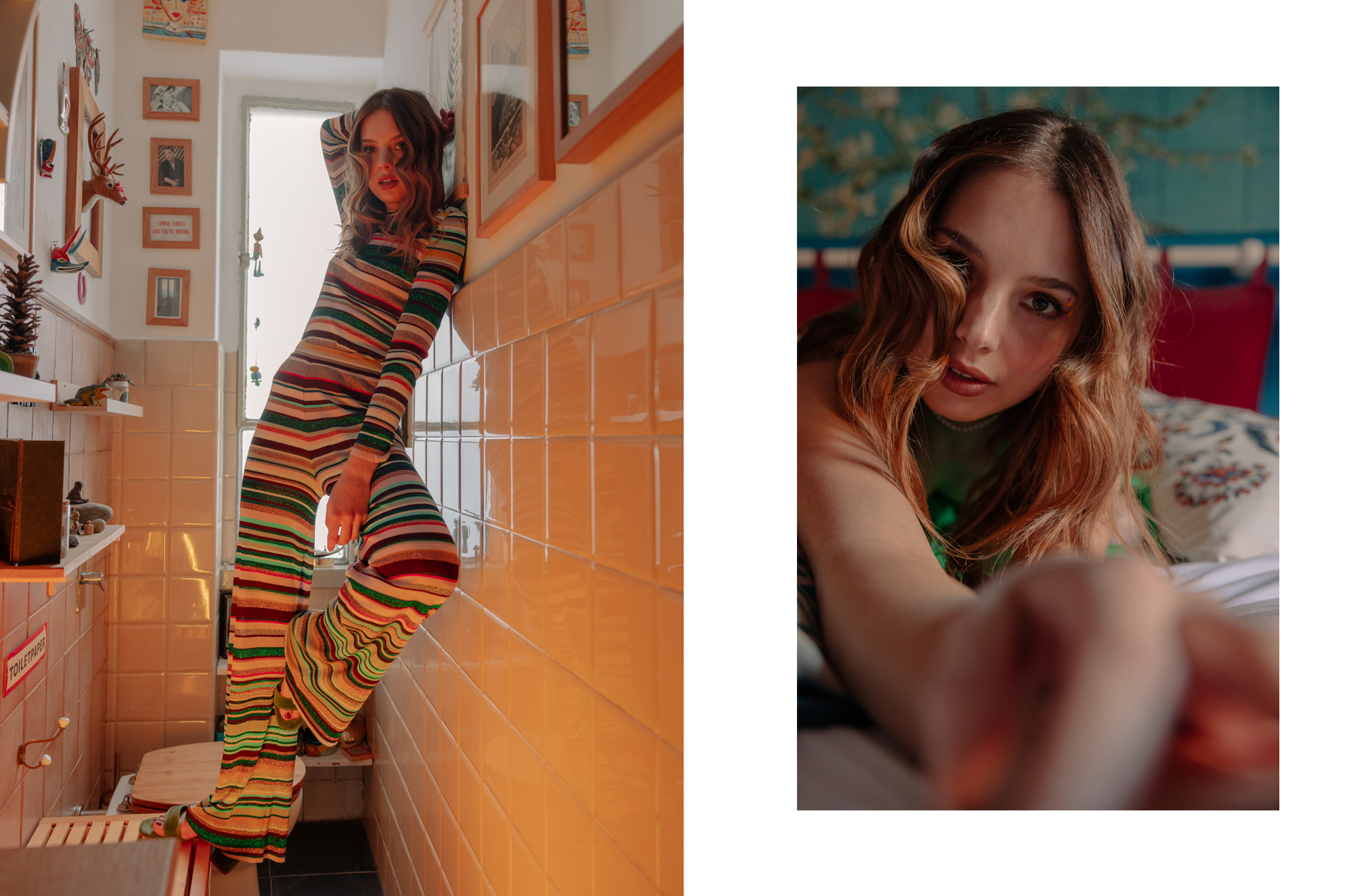The first movie set aborad, the confrontation with a new culture, with a new way of making movies and, above all, with a different language in which to act. A challenge to do all the best, a thousand steps outside the comfort zone. Federica Sabatini welcomed this challenge open-armed, with the Netflix TV series “Toy Boy,“ where she perfectly acclimated, between the anxiety of incommunicability and the veil of ambiguity obscuring her character. Rania, however, was a fun role to play, with passion and curiosity for her warrior soul, in her fight for survival and claustrophobic relationship with her brother.
Federica is our April Cover Story. Thanks to the power of the sea, nature, and the support of spirituality, she manages to face every challenge she comes across with a spirit of initiative and ambition.
Between indelible cinematographic experiences and the necessary rebellion of “escapes,” Federica opened up with us, discussing what matters and should really matter for her and us all, men and women of this century: taking care of “your inner self, of your mind because that’s the place where everything happens.”
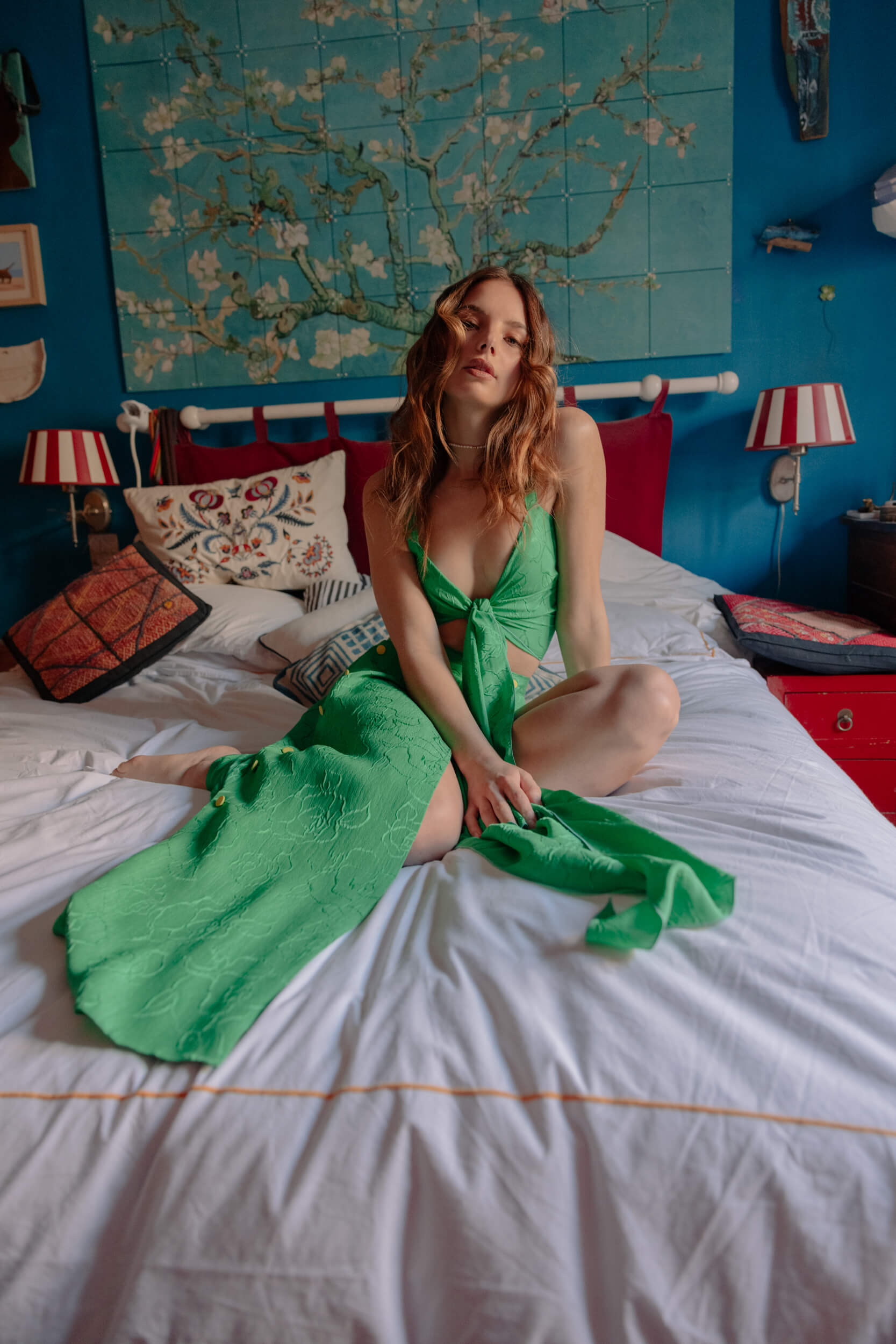
When we met a while ago, you already told me a bit about your experience on the set of “Toy Boy.” What made you say, “Yes, I want to do this,” what did you like the most about the project?
I met my character at the auditions, and I had a lot of fun. I really liked her, I found her so interesting to play, so I didn’t think about it twice. Then, also the fact that I could work abroad, it would have been my first experience in another country, so I would have had the possibility to experiment with my way of working alongside the way of working of another culture, other people who live in another cinematographic context. It was really interesting.
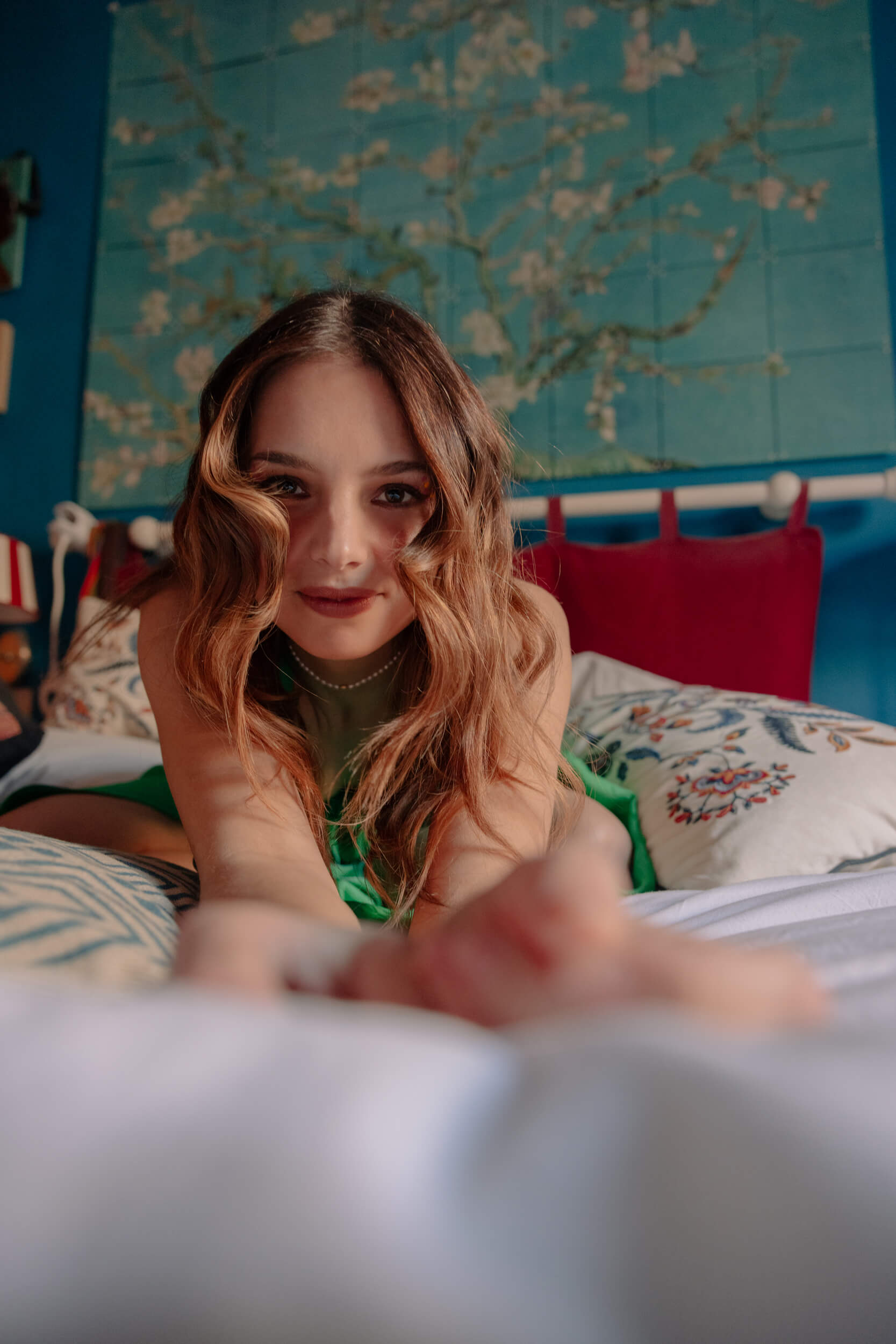
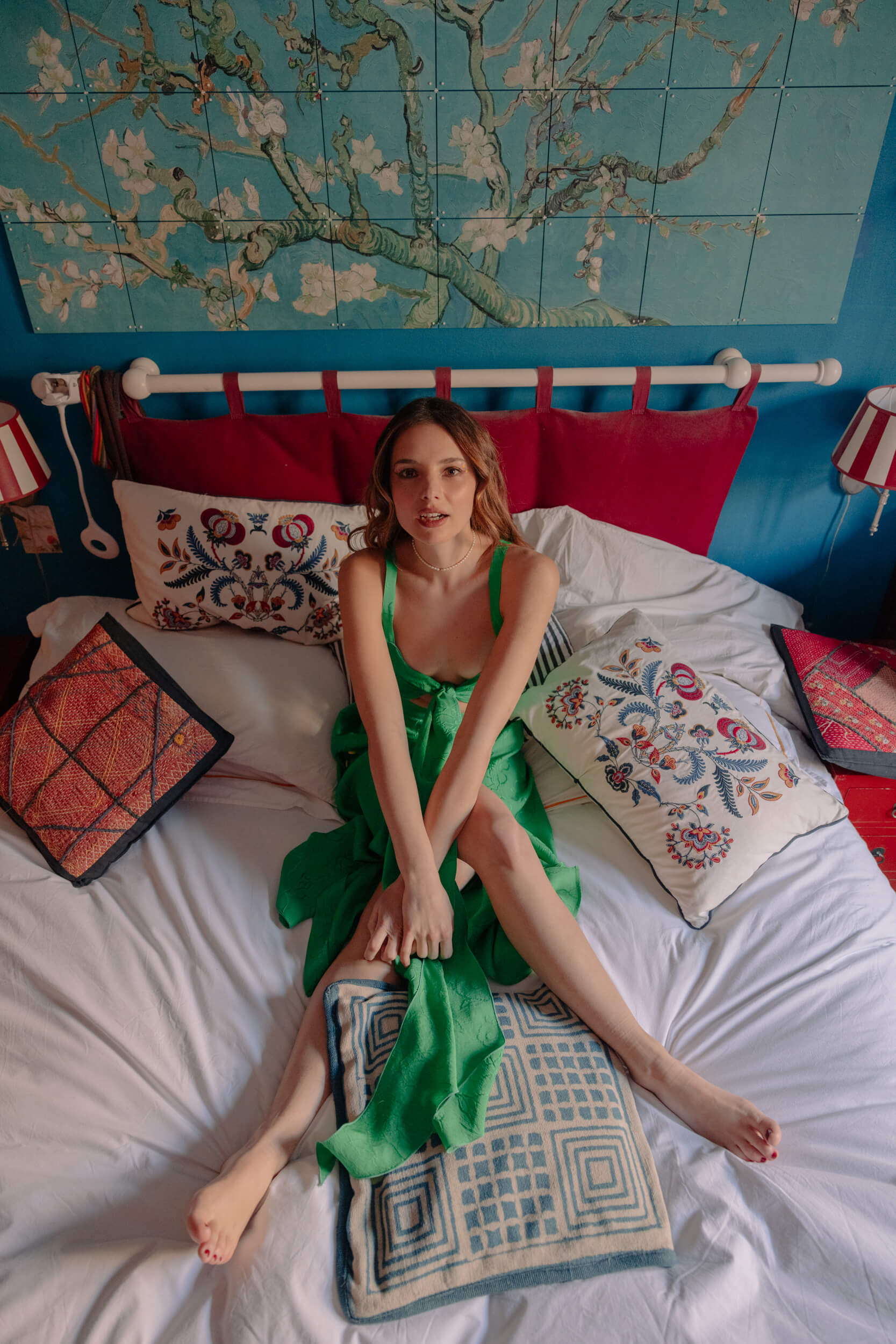
Was there a question you asked the screenwriters or the directors when you read the script and met your character? Were there things about which you wanted to know more?
Actually, I think I asked them a ton of questions [laughs]. I went there because I’d already read part of the script, they had sent me it so that I could familiarize myself with the project, so once there, I had some things pending about the story: I needed to understand the relationship between my character and her brother, which is very particular and, in the beginning, also very ambiguous, and I couldn’t tell how pushed on ambiguity it should have been, or rather if it should just appear for what it was. My character is Italian, so she has a background that’s familiar to us and, in the perspective of a new season, it will probably be furtherly highlighted, even though already in this season it’s pretty much explained, in a couple of moments, by both of the siblings. Therefore, my doubt was about how to insert this Italian background in the Costa del Sol, besides having a better understanding of the storyline because my character really is a tough one. She’s been living two parallel lives forever, one that’s interior, and the other one that’s her answer to the world, how she acts, how she behaves in order to keep things under control; however, inside, she’s always in opposition to what she shows outside, she’s a multi-layered character…
… all yet to be grasped! [laughs]
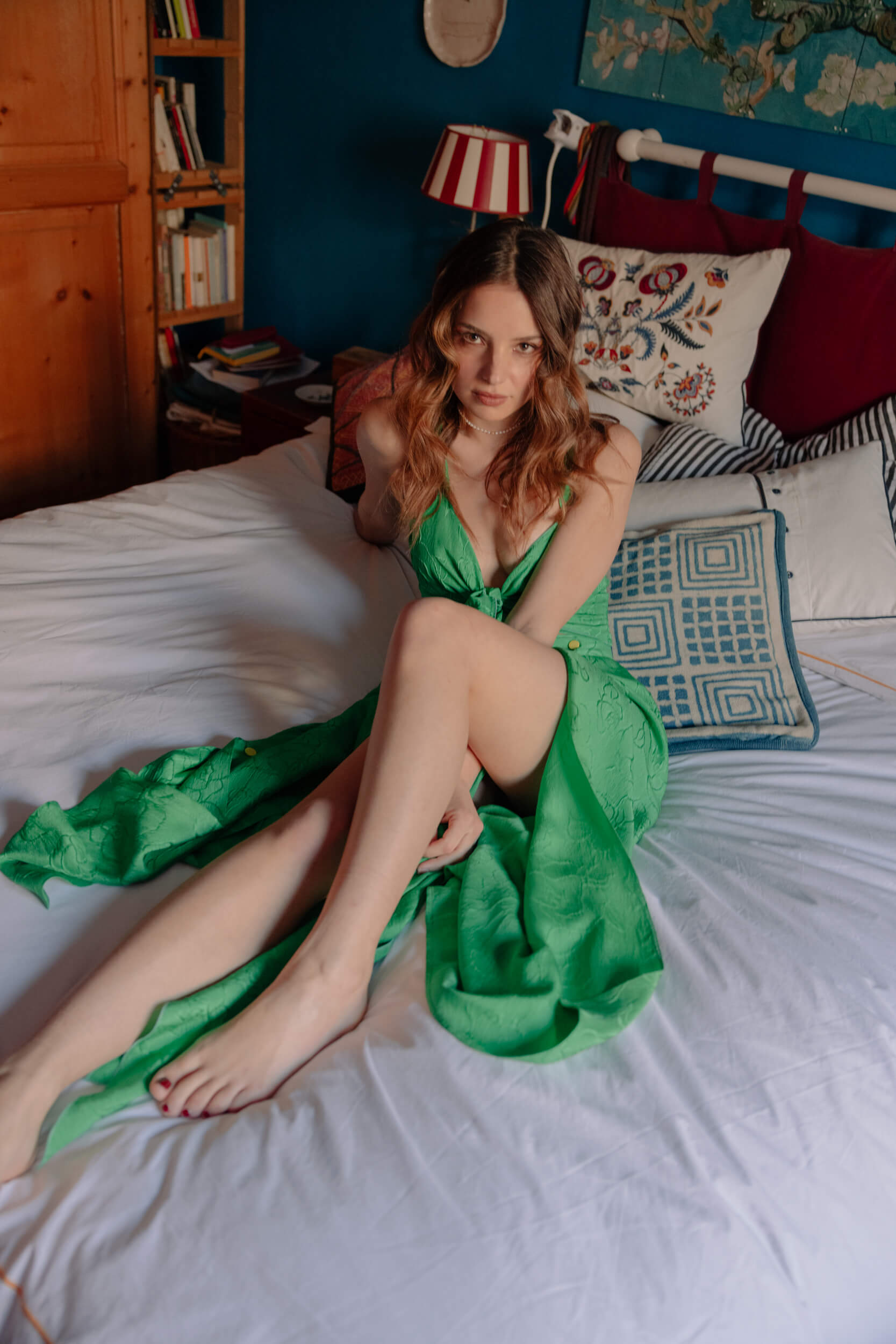
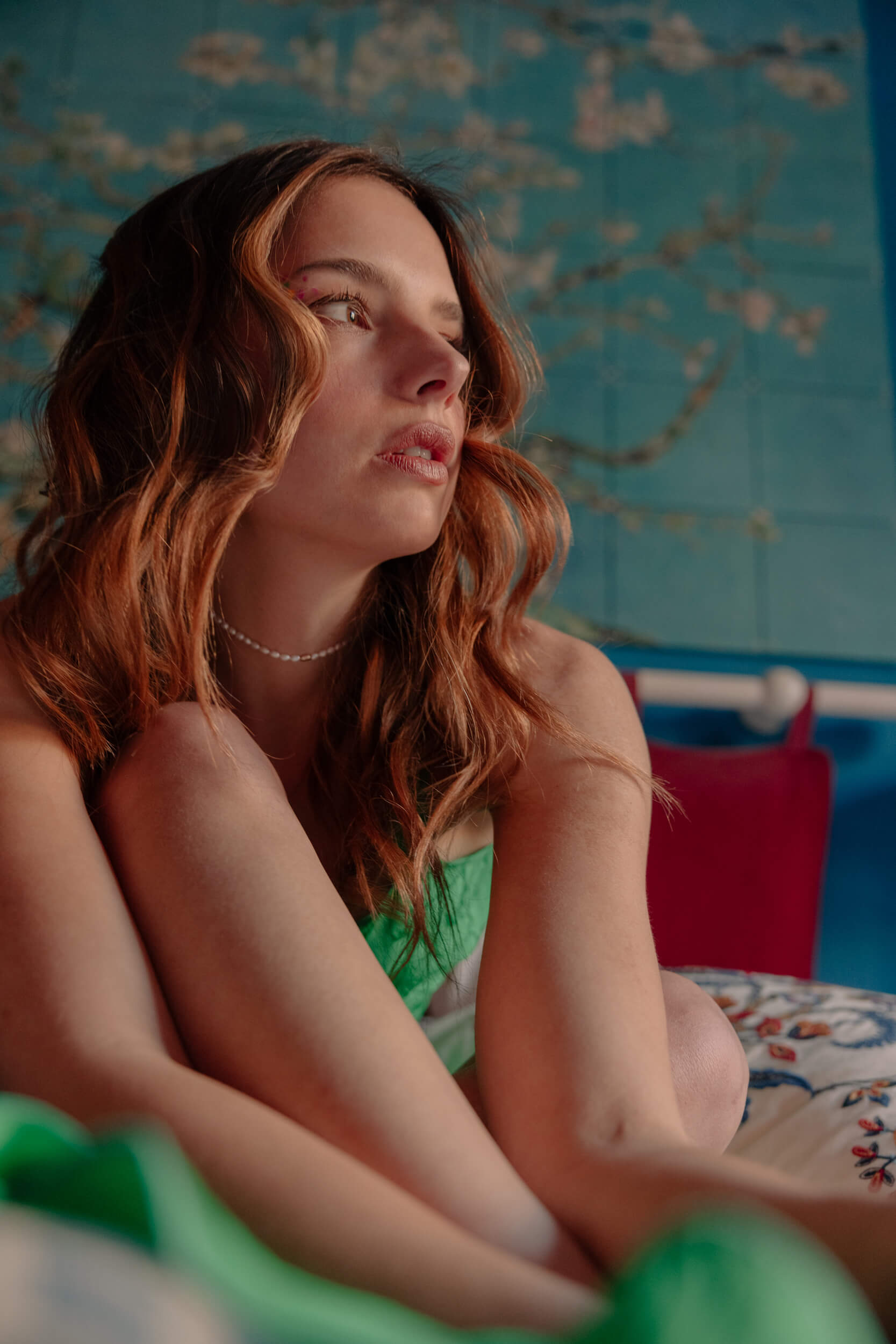
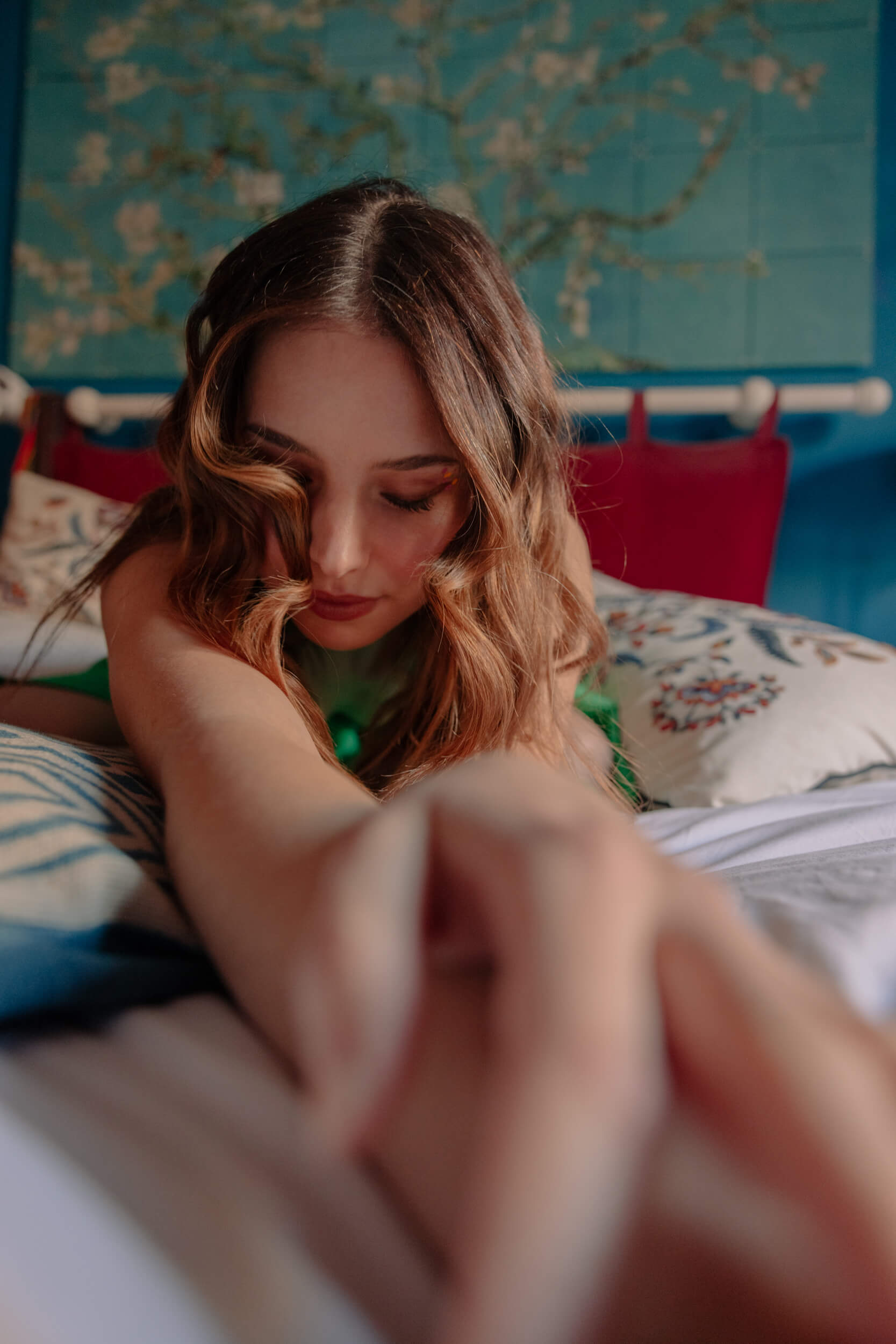
Is there something of yourself in your character? Do you feel like she’s left you with something, taught you some lessons?
What surprised me is how much fun I’ve had to play this character. Somehow, she’s also intimidated me because it was hard to play, but on the other hand, the desire to do well was so strong that my most vivid memory and feeling now is how much fun I had playing Rania. It was a new thing, to deal with the fear, but with the encouragement of happiness while facing it, while jumping, instead of telling myself: “Oh God, it’s too high from here!”. Okay, it looks very high, but I’m jumping anyways, let’s see how it goes. So, my character left me with some great energy. I don’t carry pieces of her inside, she’s not a very reputable question [laughs], but her nerve was helpful to me.
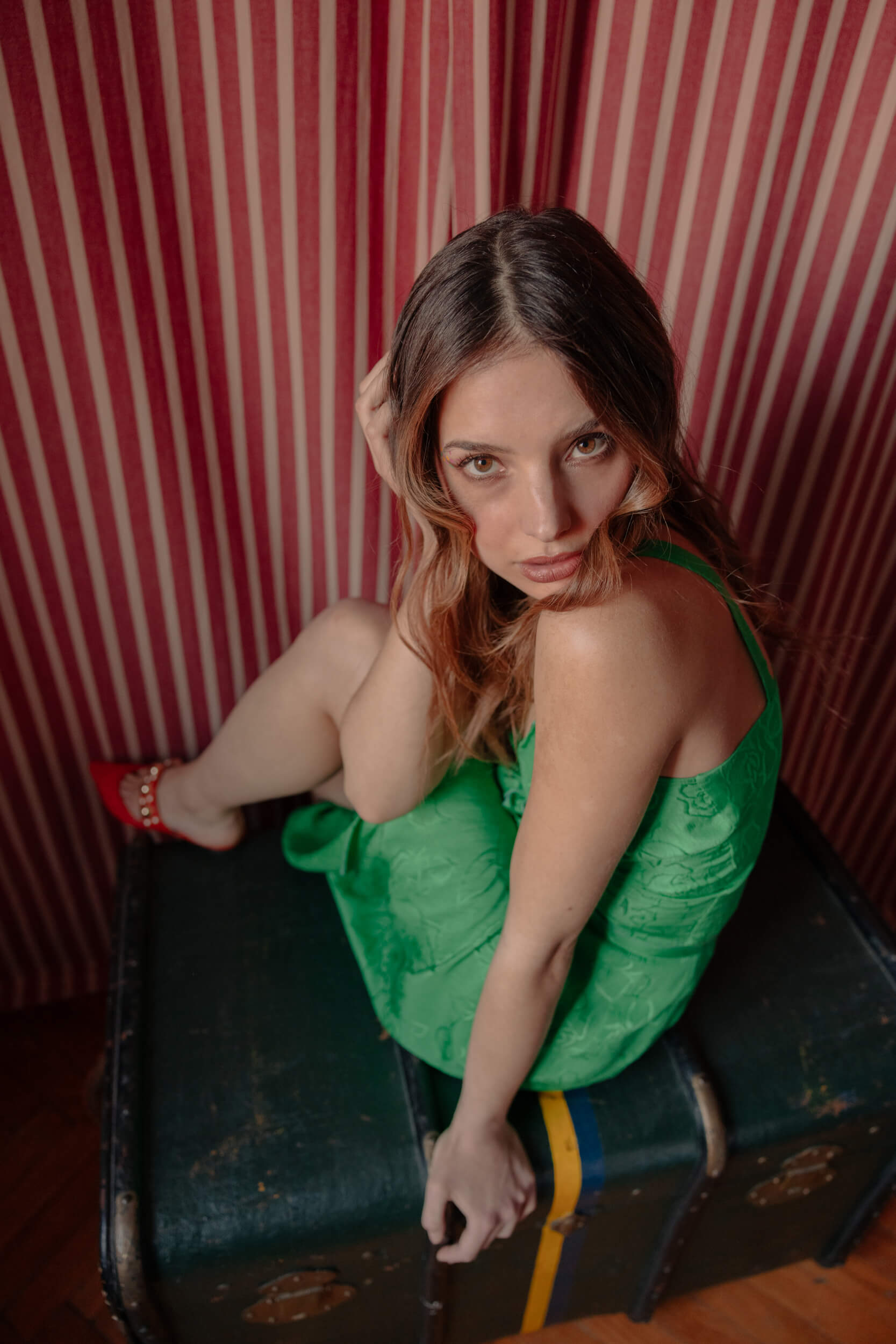
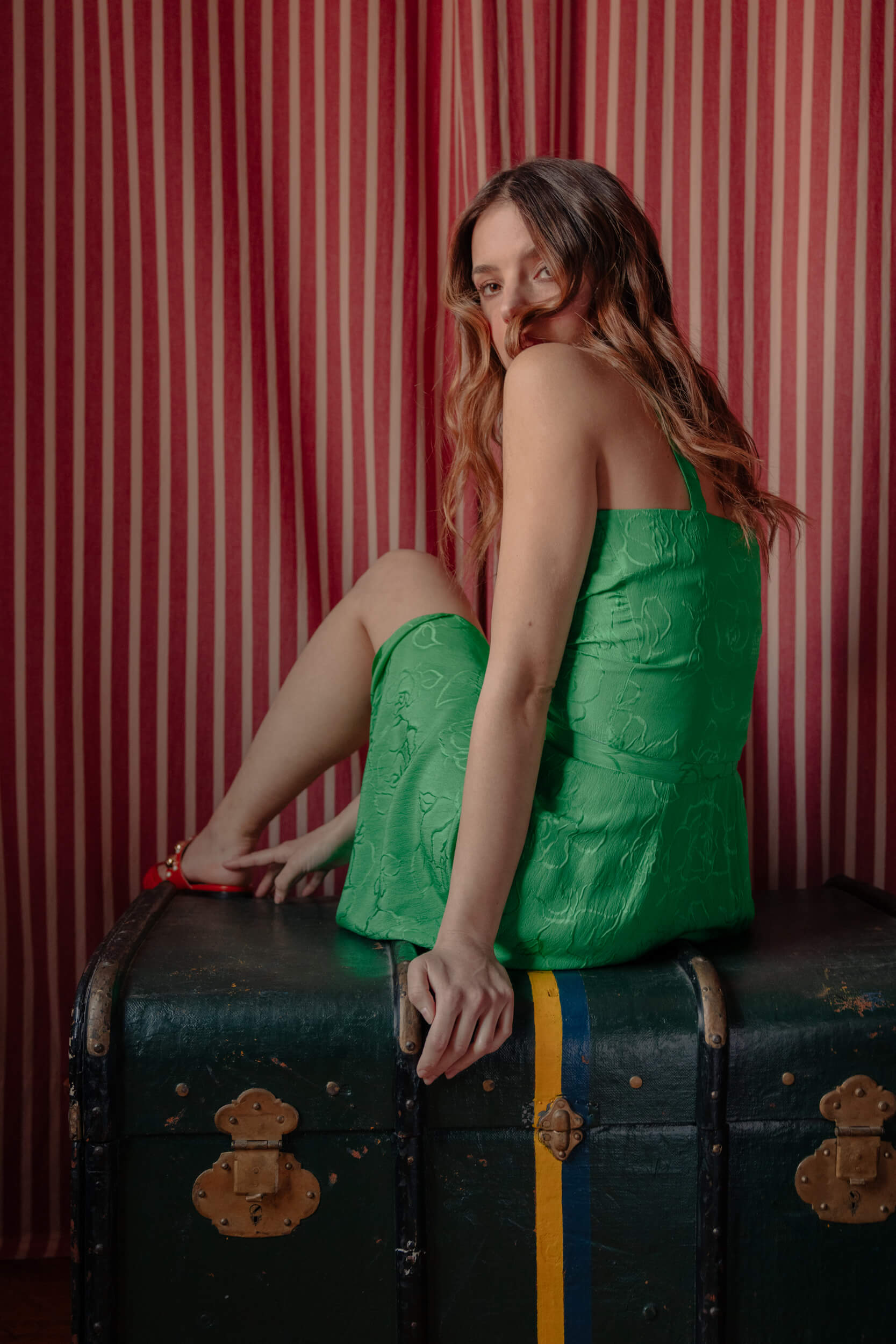
“my character left me with some great energy…”
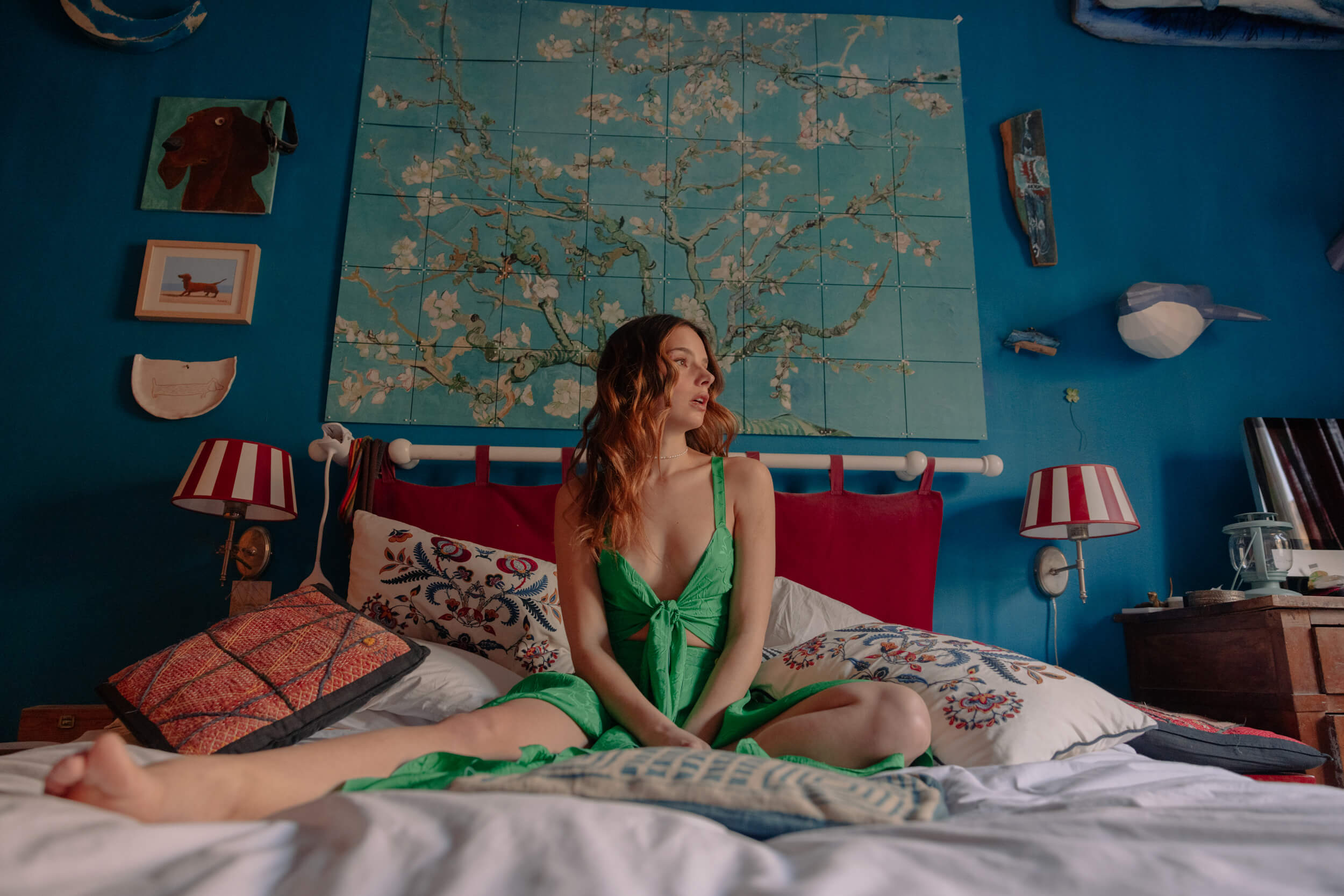
Did the prospect of having this experience, like you said, in another country, with a different culture and language, scare you at the beginning? What was it like?
I have a tiny problem with perfectionism, so the situation made me feel uncomfortable for sure. Above all, what scared me was the fact that I couldn’t discuss my work with anyone who was on set at any time, with all the necessary words to do it, from speaking of makeup and hair to production design to the direction and script, talking about the characters in the way I would have done if I could have used my mother language, with the same range of words and possibilities; so, that was my number one goal, to get there with a base of linguistic knowledge that would have allowed me to deal with the most practical side of the job.
I was already building the character, I had a language coach there, so from that point of view I knew I had a support system I could count on, but I also had to support myself as Federica, that’s why I practice conversation all free the time I had, and I didn’t have so much free time, only about a month and a half between the moment I knew I got the part and the first day of shooting. Before leaving for Spain, I practiced conversation in Italy with a native-speaking teacher, and then I went there. The first days I had to act in Spanish, I “kidnapped” the language coach who was on set, poor woman – now we’re friends and she loves me – I basically confined her with me to the desk and told her, “We won’t move from here until my lines are perfect!”. Luckily, we’re very similar in the sense that she’s a perfectionist like me, so we found each other, but I was really bad [laughs]. It’s also a matter of respect towards everyone’s work, I couldn’t just go on set unprepared and act in another language, it would have been an act of disrespect towards my colleagues, and you just can’t do that. However, in the end, we made it.
The thought of it makes me laugh because when I watched the show, I noticed the moments in which you could hear my Italian accent, and those maybe filmed on different days but edited together with the above-mentioned ones in post-production, in which my Spanish was completely different, more fluent: what a funny “ability” Rania has of improving or degrading her Spanish at any moment! [laughs]
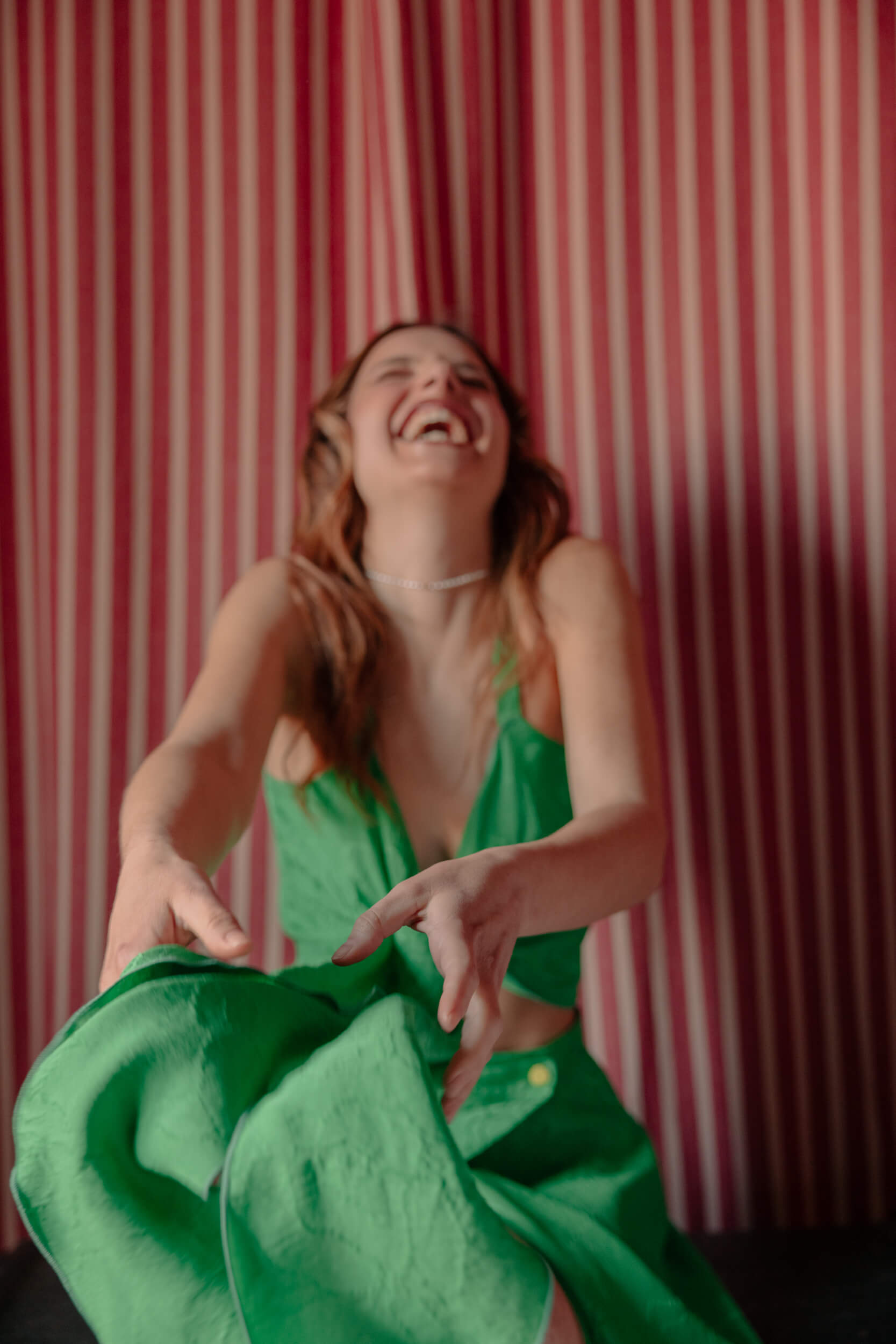
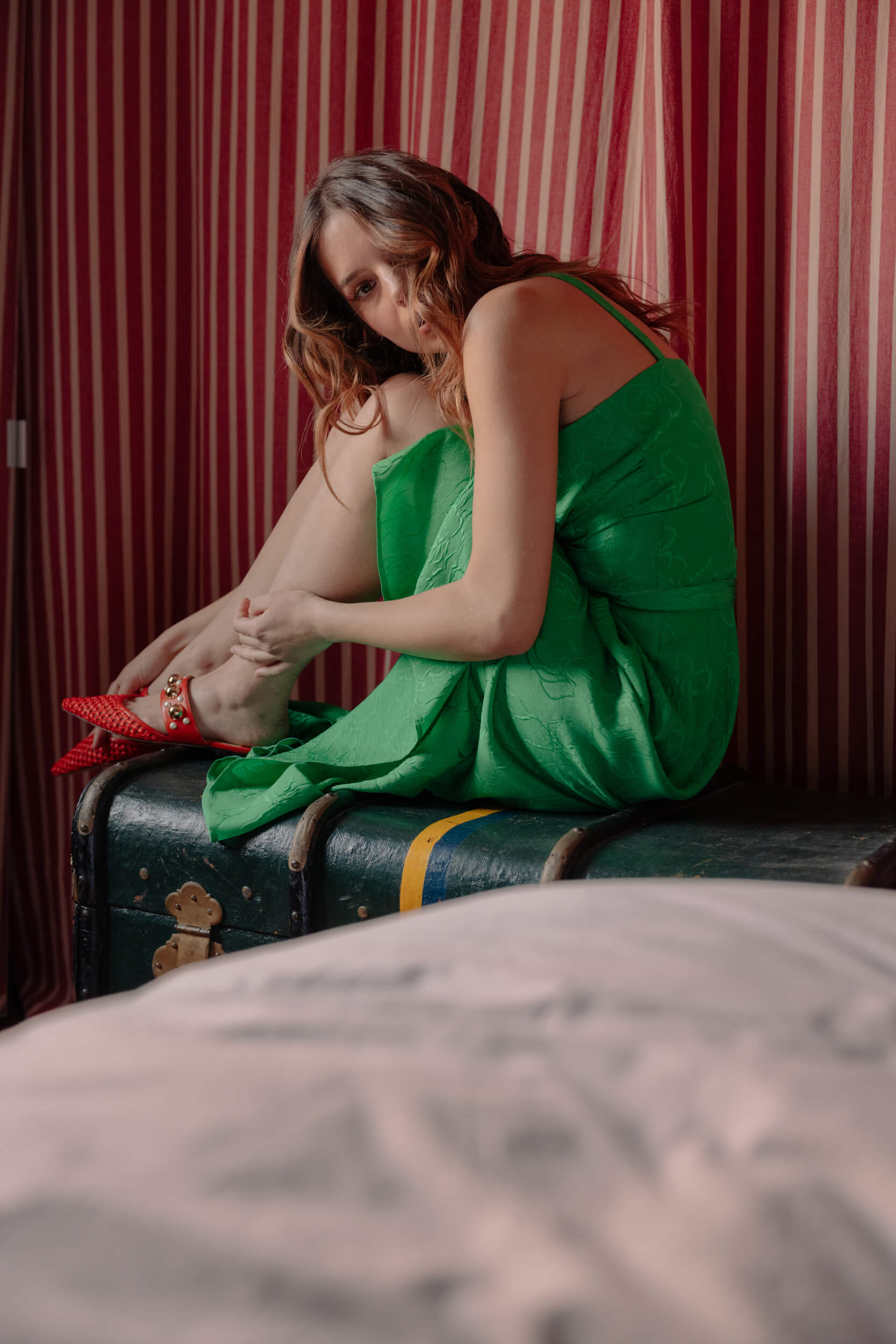
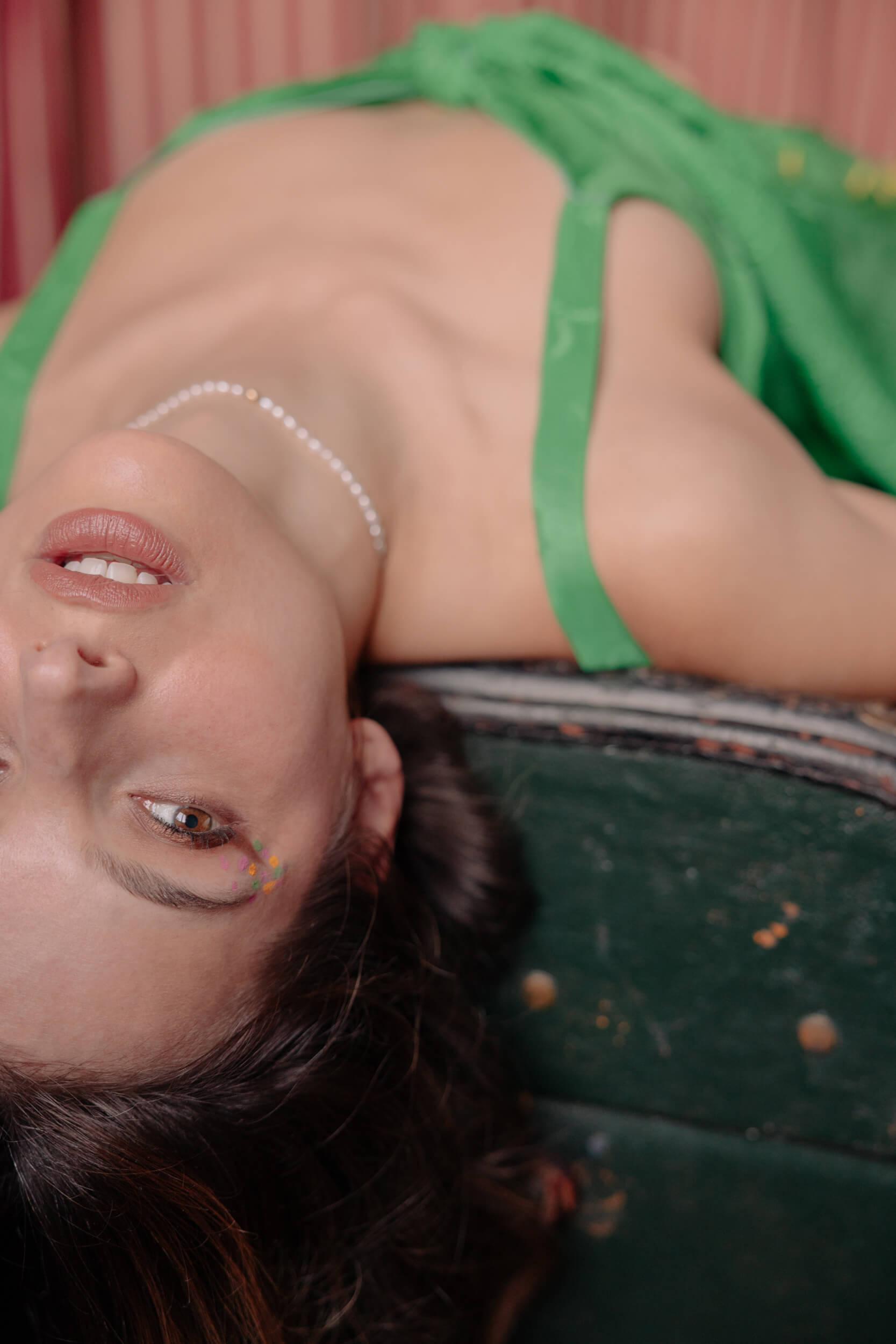
How would you describe your character in one word?
She’s someone who fights for survival, a character who puts the effort to always save her life before everything else. I know this is not a word, but I wouldn’t know how to describe her in just one word. It’s her emotional side that makes her do things because she’s living a claustrophobic relationship, of total dependency, with her brother, whose things she also has to manage, and she’s the only one who can handle his very complicated personality, so what she does is trying to survive, always.
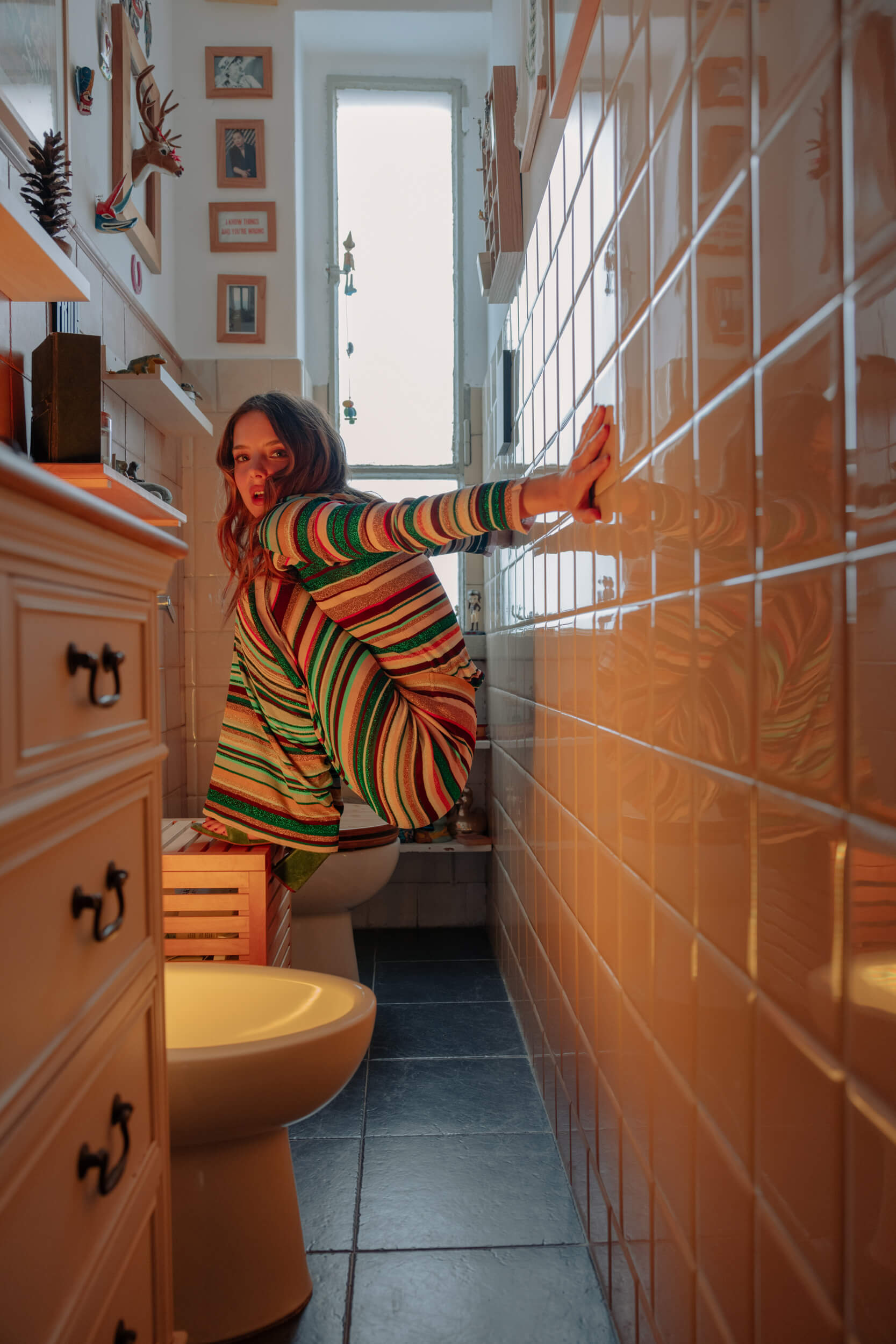
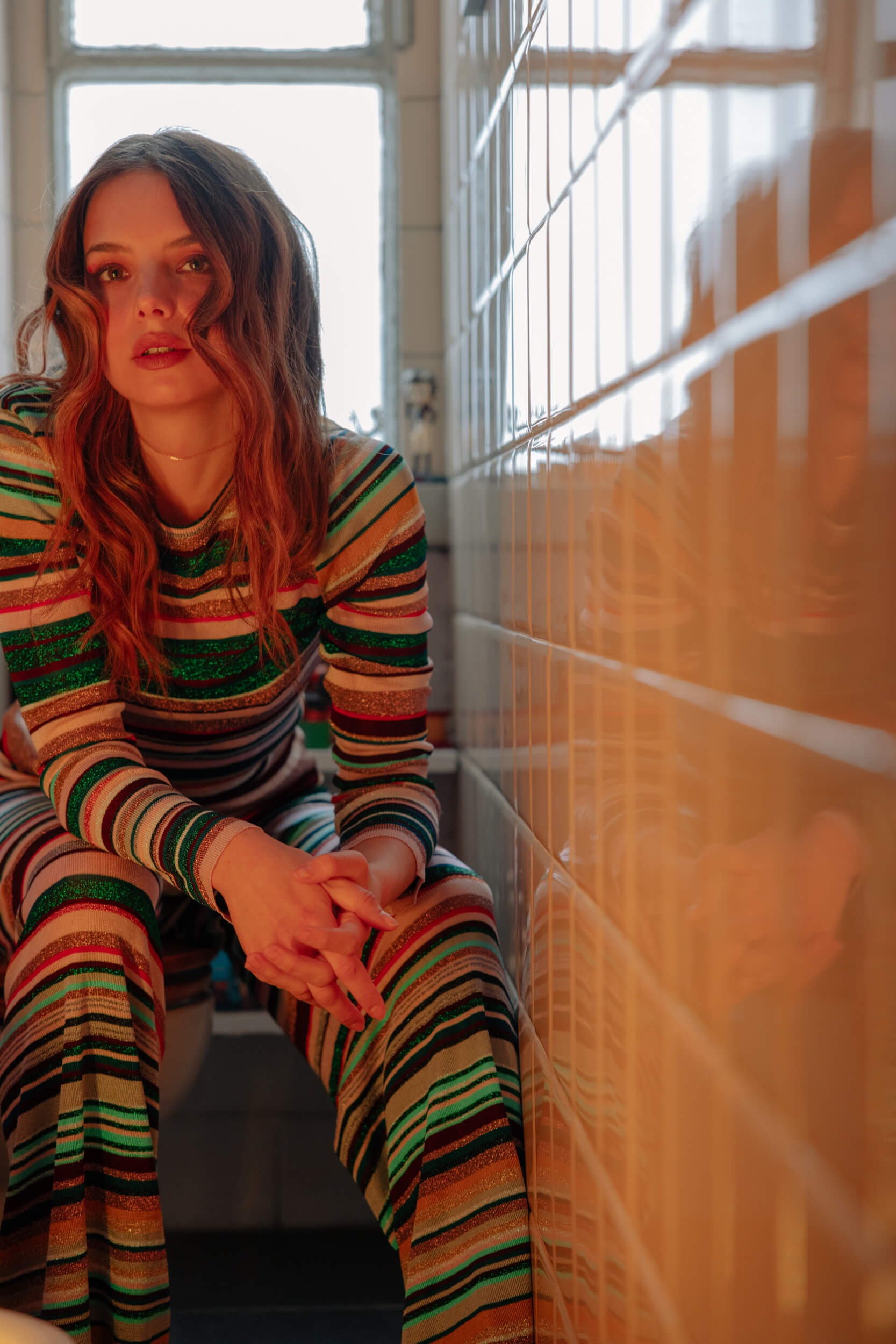
I know that you write very often, for example, you also have your own writing project; is there something in your life that you do on a daily basis in order to re-center yourself? Maybe in a stressful situation like the one you’ve been through, which has been quite tough, like you mentioned before, even though it’s all part of your job. Is there something you do and was there something you would do, also back then, to find yourself?
Yes, I meditate. When I’m going through some very tough moments, inwardness is always the answer, going back inside to understand and help myself is my answer. I practice reiki, use incense, candles, crystals, and all that can help me meditate.
Nature is also very important to me: luckily, I was close to the sea there, in Spain, so I could have a walk and reach the beach; the sea, to me, is an outlet, even just looking at it is enough.
Daily, I also count on spirituality a lot, and it’s not always easy, in the sense that you often forget about it, even if you’re someone who practices it a lot; sometimes, I forget about it because if you’re feeling some emotions that are way too strong, first and foremost you need to let them pass, and only then you can find the key to re-interpret all that is happening or help myself, support myself.
So this is my answer: spirituality.
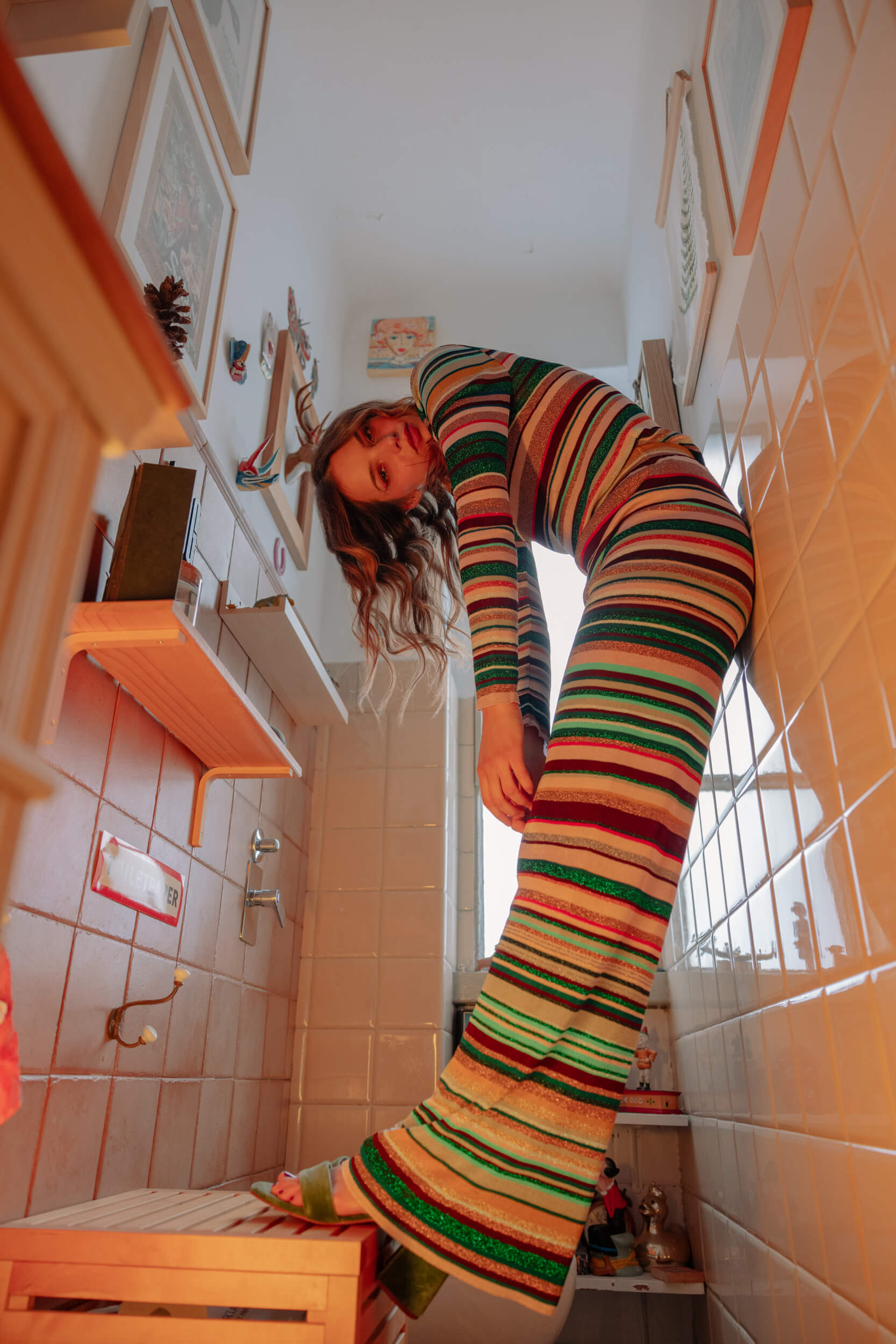
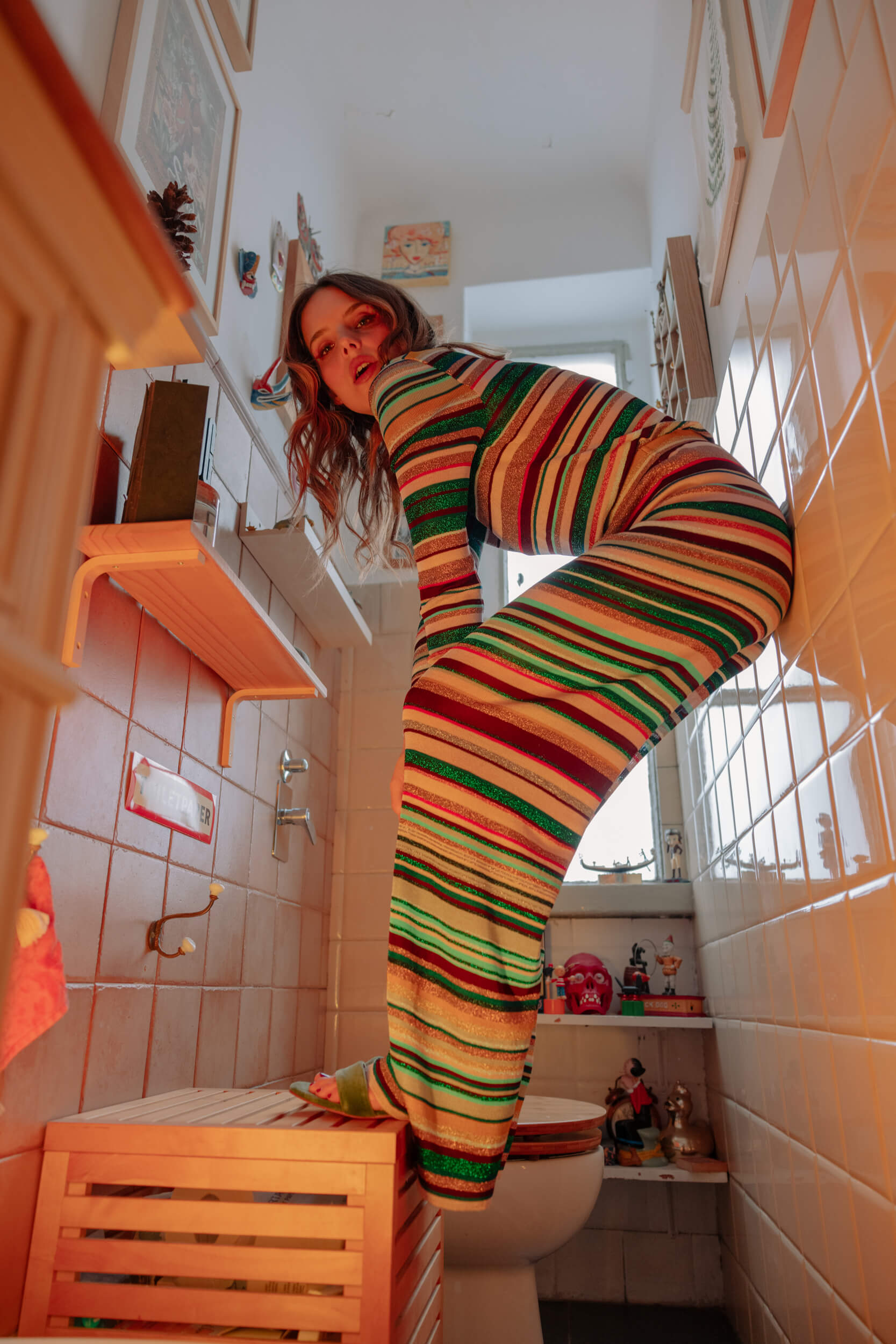
“When I’m going through some very tough moments, inwardness is always the answer, going back inside to understand and help myself is my answer…”
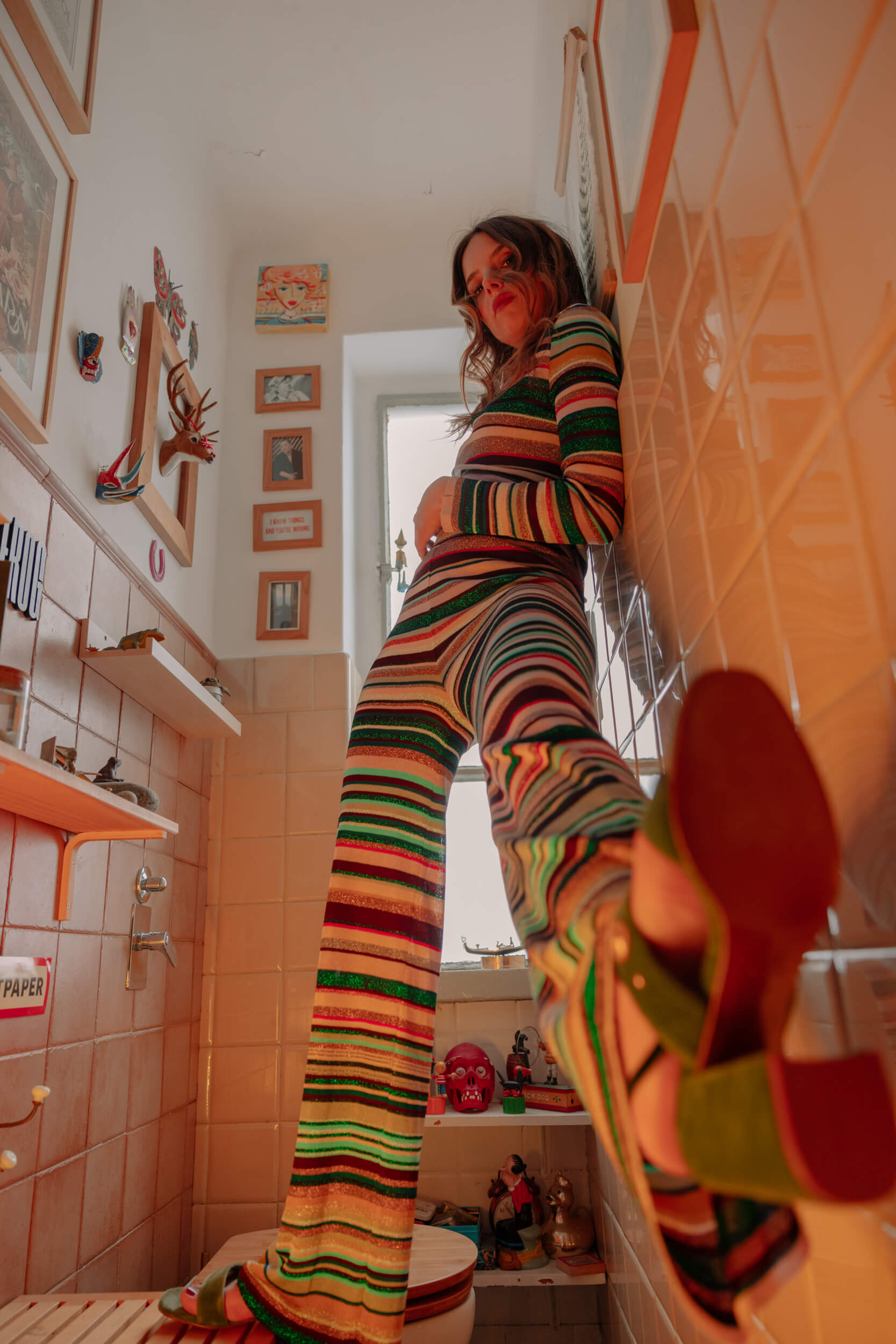
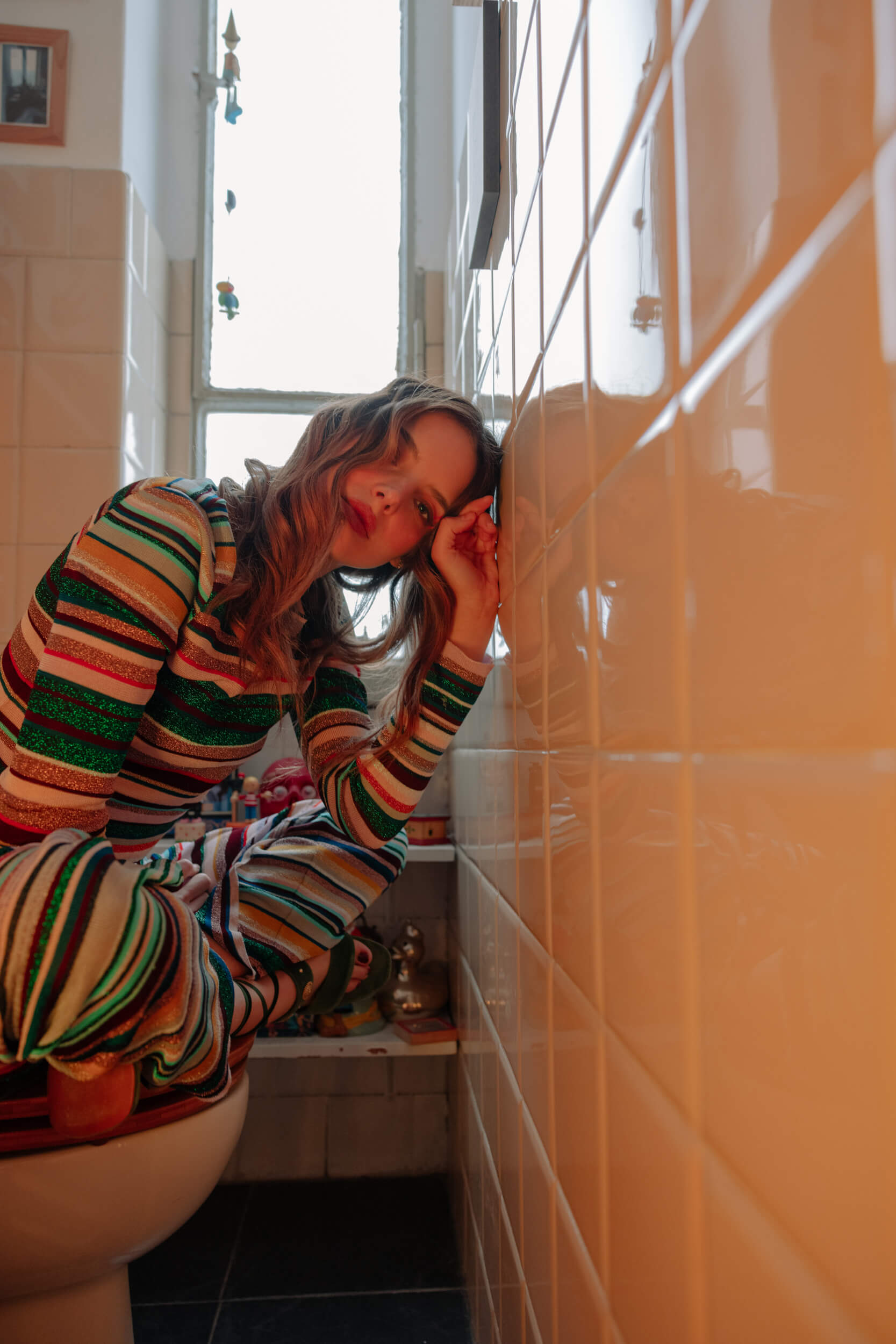
What we try and do, both in our “ordinary” interviews and in those featured in our formats, is openly discuss mental health, and how important it is to take care of that part of us, not only of our bodies, which then, of course, benefits from it as a consequence. In your opinion, how important is it to increasingly normalize this topic of discussion? Do you believe we’ve reached a time in history in which we can talk about it more and more?
In my opinion, we should have normalized this topic from the very beginning! I study psychology, so I firmly believe that this discussion is important. Today, we’re lucky because we tend to talk about it more, but there’s still a huge prejudice around it. The human psyche is incredibly powerful if we consider the way in which we try to survive and what we could do to feel good: there’s a universe in our head. Very often, our body, being so tightly connected with our minds, become a mirror of the healthy state of our psyche. I don’t know why there’s so much shame around the topic of mental health, but I think it depends on the existing prejudice about madness, which is something that we don’t know, that’s different.
One more thing is that now with social media there are all these “promotions 3×2” of ready-to-use therapists via chat: that’s not therapy, that’s like if you needed a doctor to have your liver checked, and instead of going there for a visit in person, you sent him a picture of the part of your body that hurts. It doesn’t make sense! In that way, he would have nothing to diagnose, no medical record, he couldn’t visit you. I hope we get to a point where the discussion becomes totally normalized because it makes no sense not to investigate people’s minds, that’s the basis of everything, to feel good you need to take care of your inner self, of your mind because that’s the place where everything happens, we record everything in there. It’s crazy that it’s still maltreated as a topic, or diminished by those who say: “It’s no use to go to therapy, have a chat with your friend and it’s the same thing!” [laughs].
So, long live the normalization of the psyche.
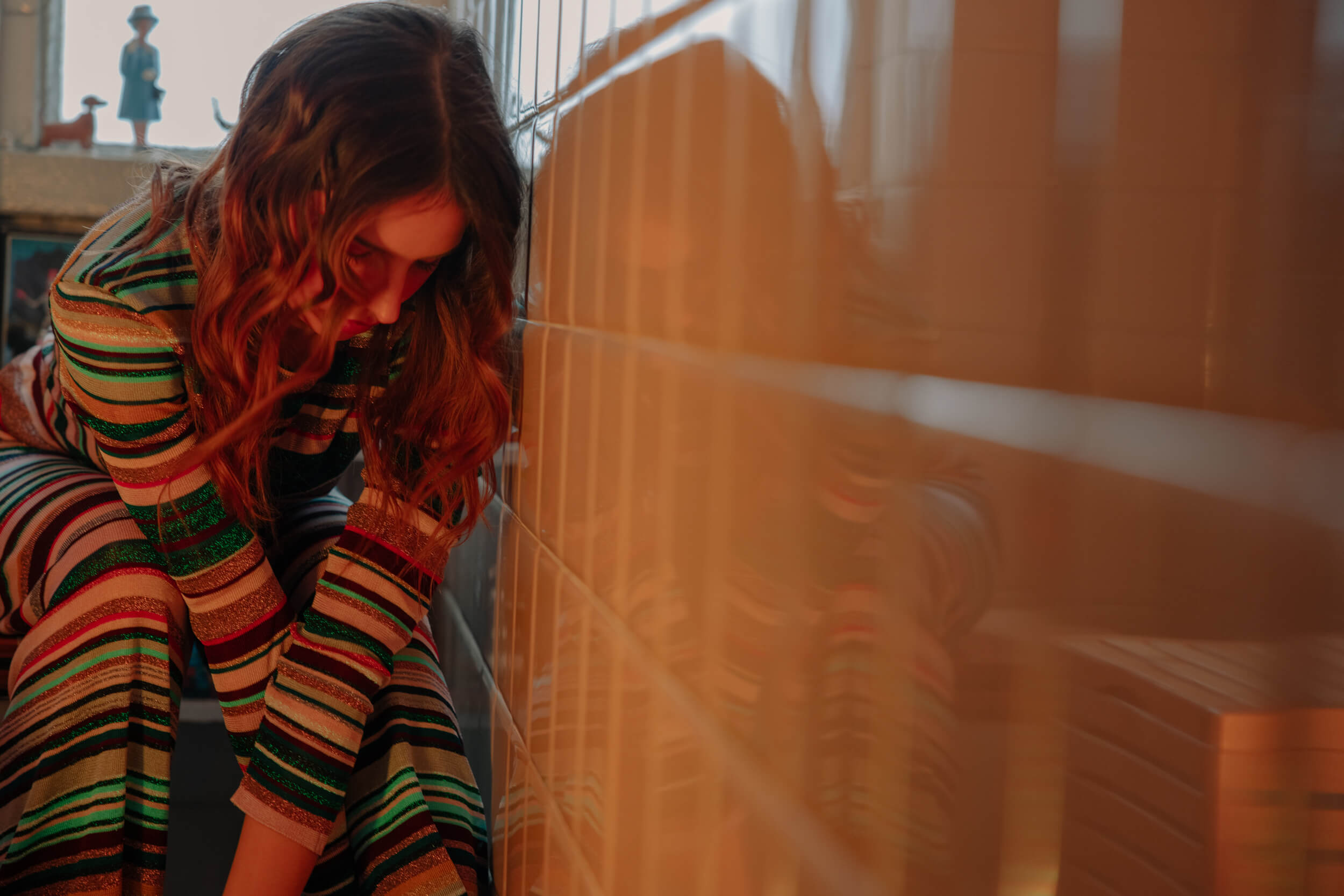
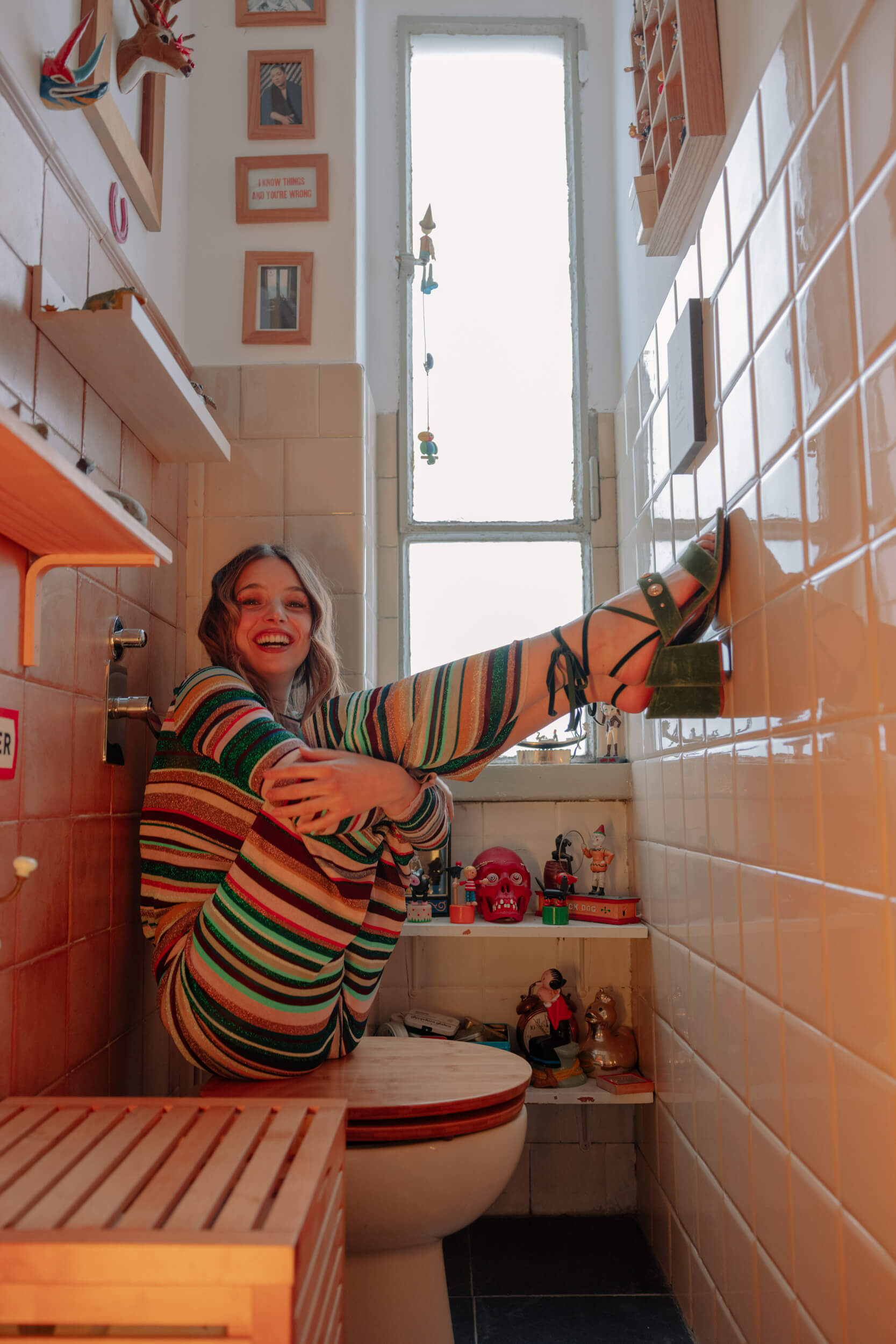
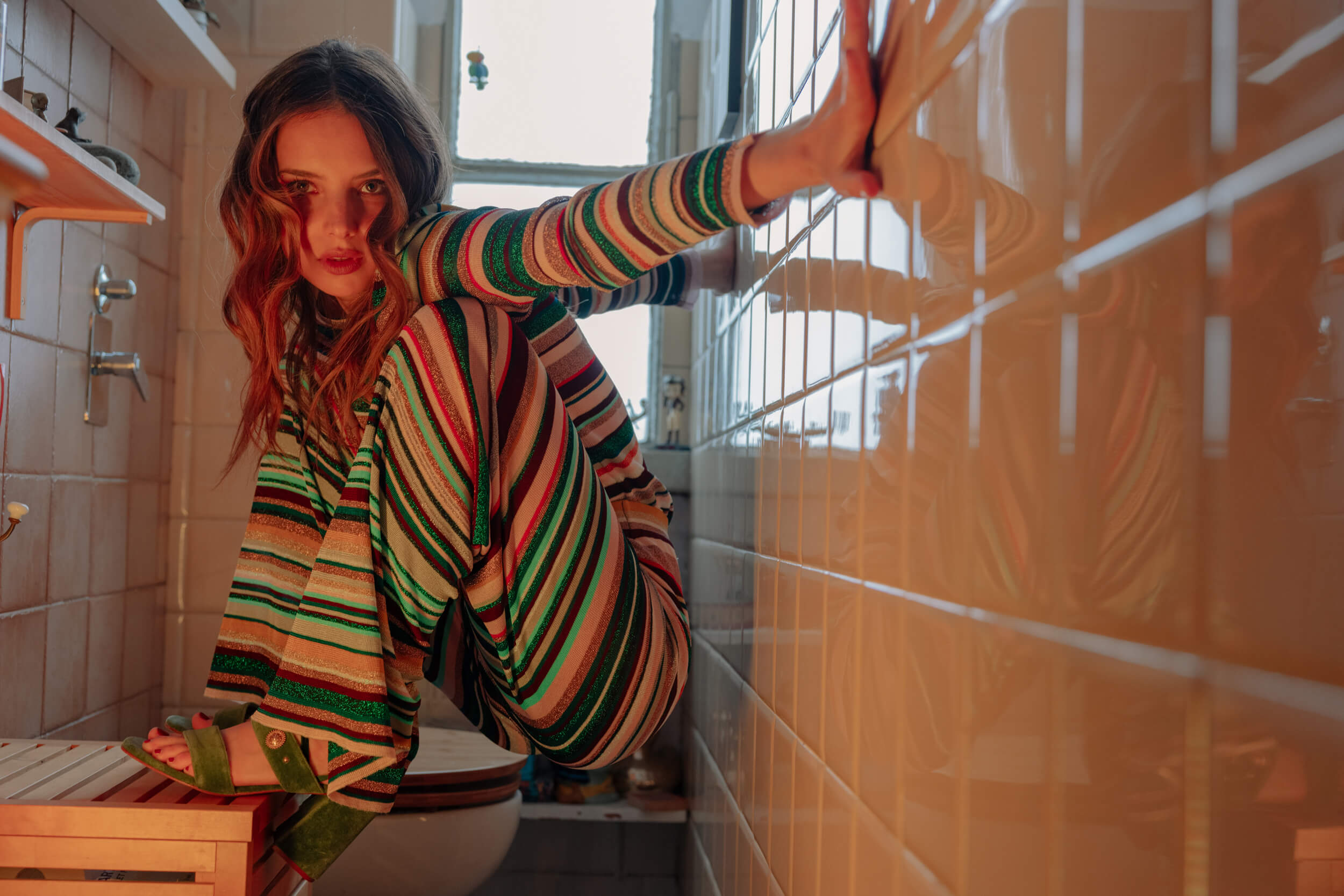
By the way, I think that your job as an actress is coherent with the studies you’re doing, maybe it’s something that all actors should do because I guess that studying the human mind and its mechanisms can help you deal with certain kinds of characters, get even more into them, understand them. I remember that once you told me that actors shouldn’t judge the character they’re playing, but sometimes it can be difficult to understand certain mechanisms… I mean, it’s super interesting that you’ve also wanted to try this path.
What was your biggest act of rebellion, instead?
Fighting for my independence every day! [laughs]
All my acts of rebellion have taken place every time I’ve felt that my freedom as a person was in danger: in those cases, I went away, running, escaping from all those situations. My rebellion is learning to love myself and remembering that I must be a free person in this life.
Which is important, and not always easy…
No, it’s so hard because certain mechanisms are often triggered and you don’t even realize it, but then, once I open my eyes and see things in a different light, I only escape, you don’t hear from me anymore…[laughs] After all, I’m an Aquarius, I’m really good at becoming a ghost in people’s lives!
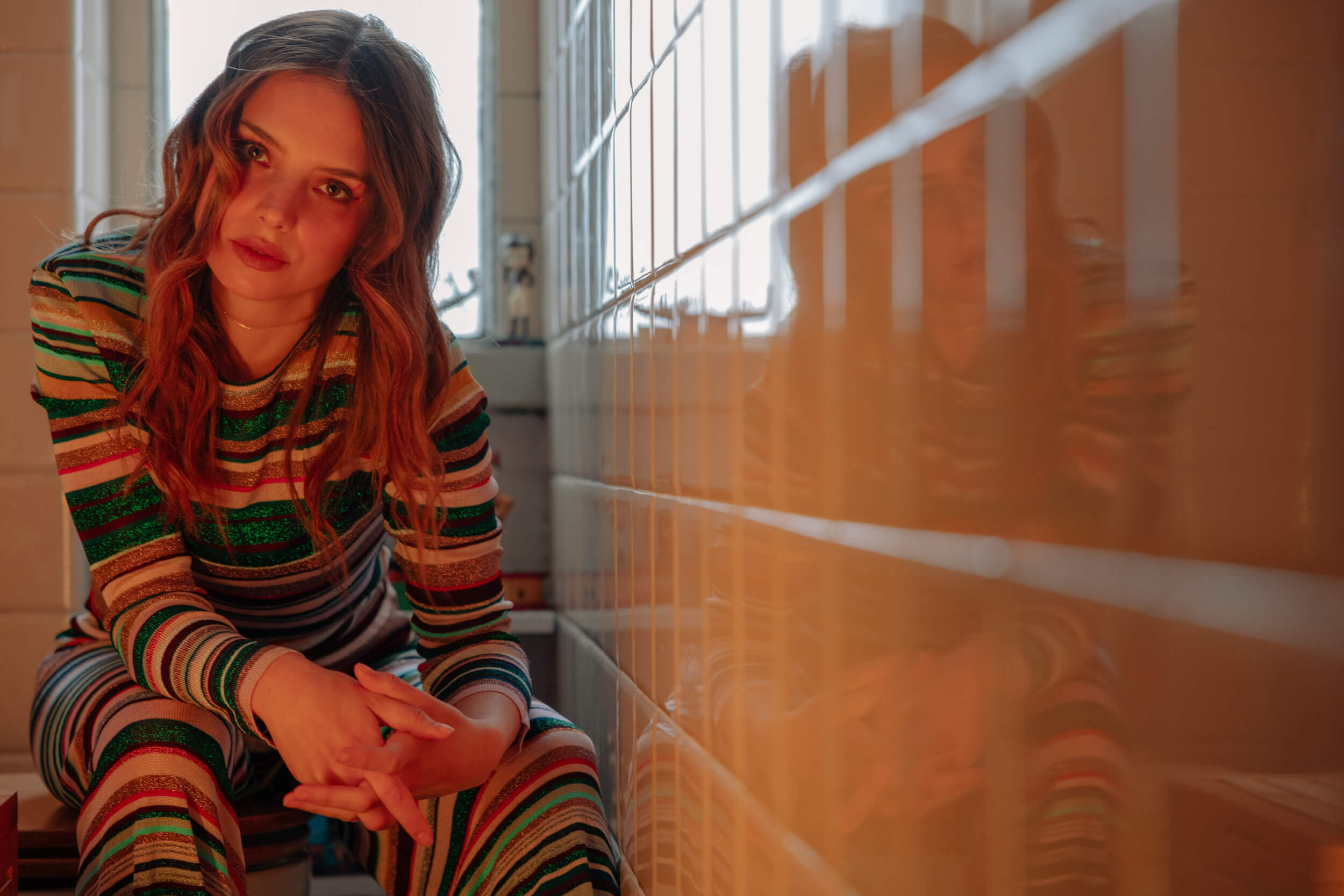
“Fighting for my independence every day!”
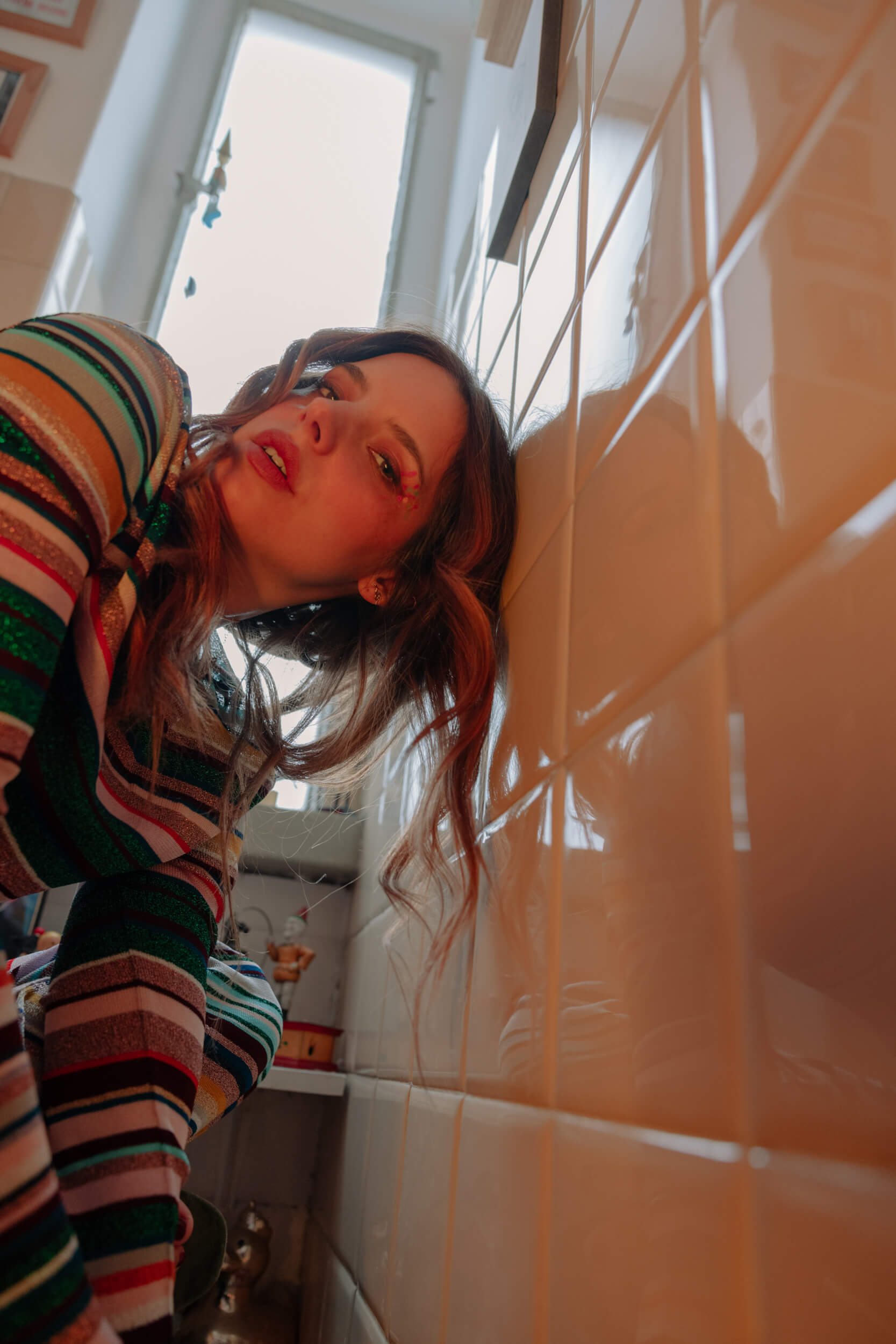
What does it mean to you to feel comfortable in your skin? And I don’t necessarily mean from an aesthetic point of view.
No, absolutely. It’s like the integration between the inner and outer world because you can’t pretend that one of the two doesn’t exist, and unfortunately, this is something of which our society reminds us very often, causing, in my opinion, some sufferance here and there. So, I believe that everyone should do what they can to feel comfortable with themselves in both dimensions.
As far as I’m concerned, to feel good about myself means to be able to fully accept who I am despite my dark sides. What I’ve realized in 30 years of life is that my biggest obstacle is always me, so I’m the one who needs to learn how to manage my tools, understand what buttons I should press with myself in order to feel good, and say: “Okay, I can’t do this today, but I’m going to work on it so that I can do it tomorrow.” There’s no one pointing any gun at your head, it’s your life and you have to feel good and do what makes you feel good.
Unfortunately, I think, here it’s all about privilege: sometimes people need therapy but they can’t afford it, and it’s not always like affordable therapy sessions are effective for everyone because not all therapists and therapeutical approaches are good for anyone, it’s like with doctors, it can happen to you to have to deal with someone who hasn’t been able to make the right diagnosis. Sometimes, you need to make the best out of what you have, unfortunately, and that’s the hardest part because it’s true that will is power, in the sense that willpower is the basis that allows you to trigger some changes, but then it doesn’t change, you can’t create a new life that’s totally opposite, maybe you can get to that point with very long times, but again it’s a matter of economic, cultural, and social possibilities, it depends on where, how, when, why you grew up. My life, for example, has changed a lot over the years; I’ve had some phases in which I’ve had some very different problems from one another, and I would have never thought I would have managed to do my job the way I’m doing it now, so I feel like telling you that life can change, things can surprise you; but it’s not a general rule when it happens, you need to be grateful and recognize it’s been the result of your own efforts, but also of a nice opportunity that you’ve had. I feel very lucky and grateful for how I’m realizing my dream because it’s not easy, it’s also a sequence of occasions that you try and handle in the best way you can.
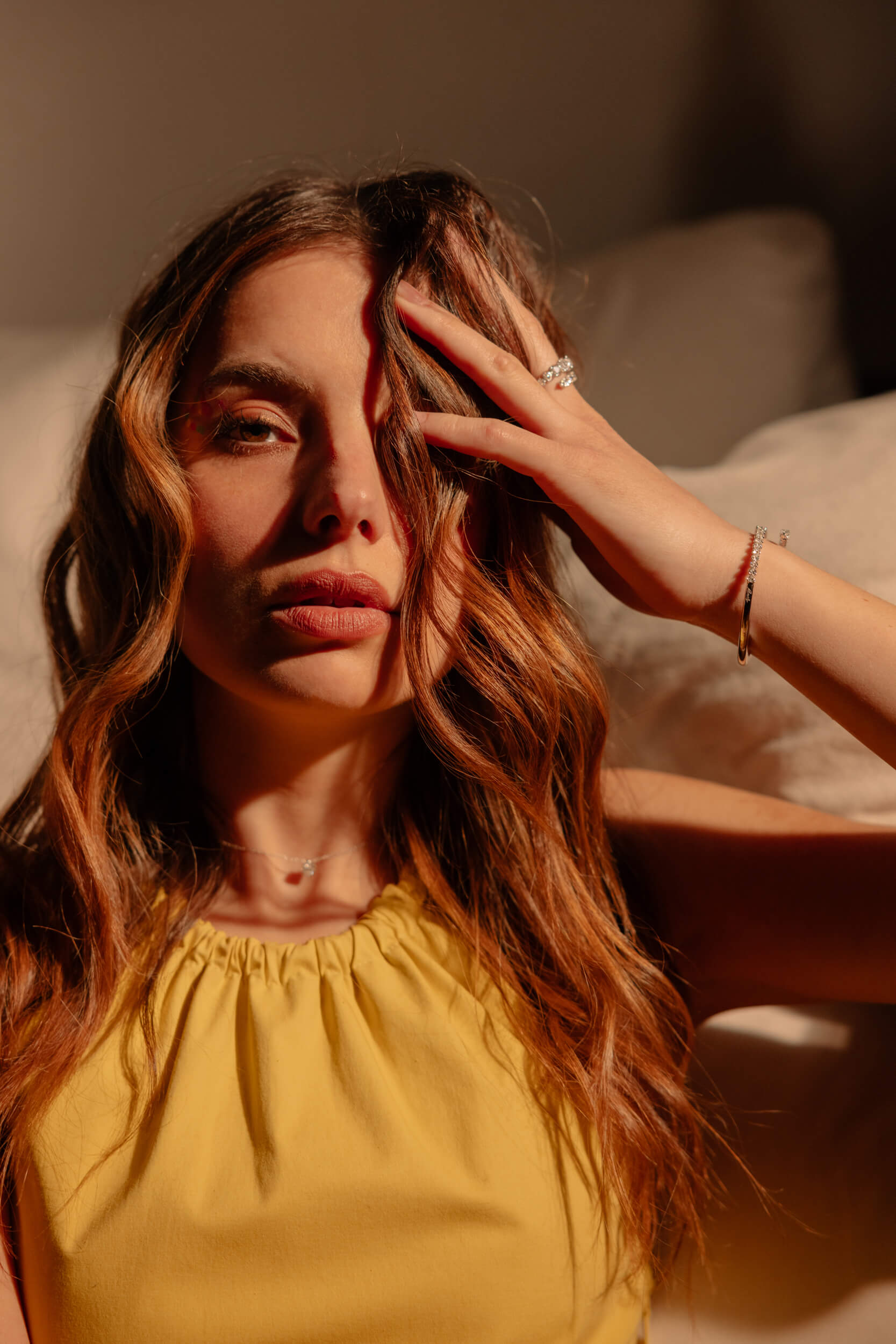
“I’m the one who needs to learn how to manage my tools, understand what buttons I should press with myself …”
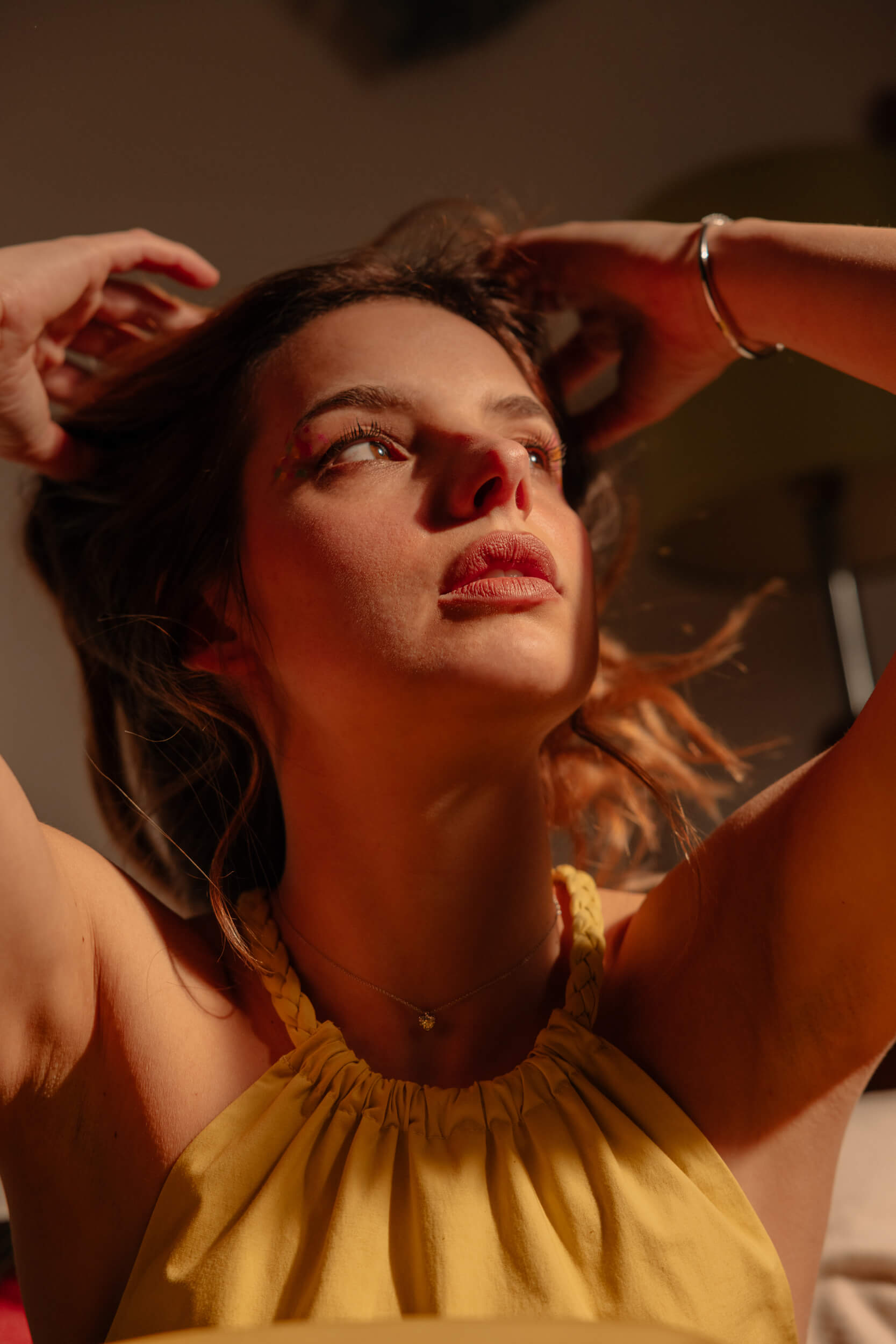
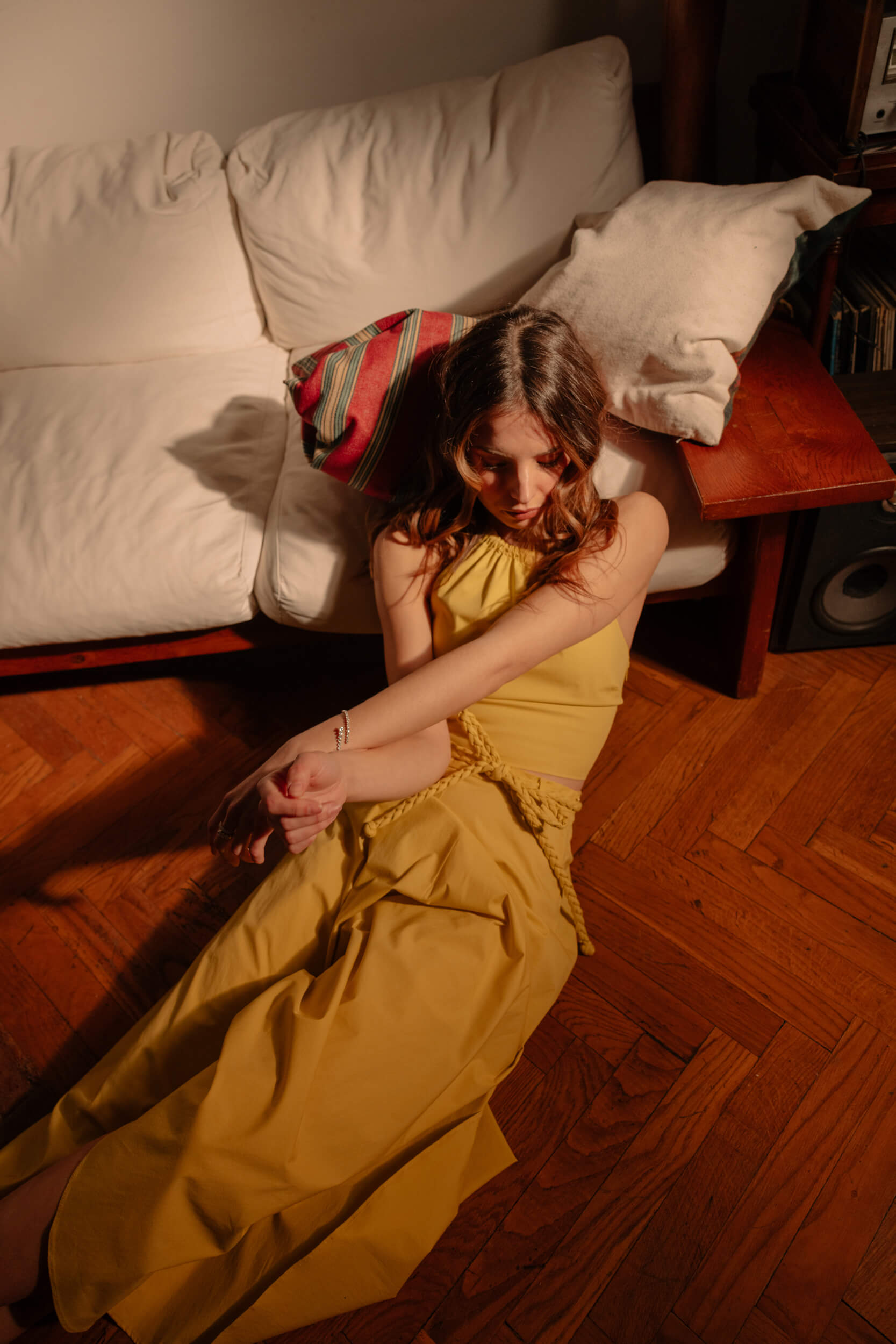
“…life can change, things can surprise you…”
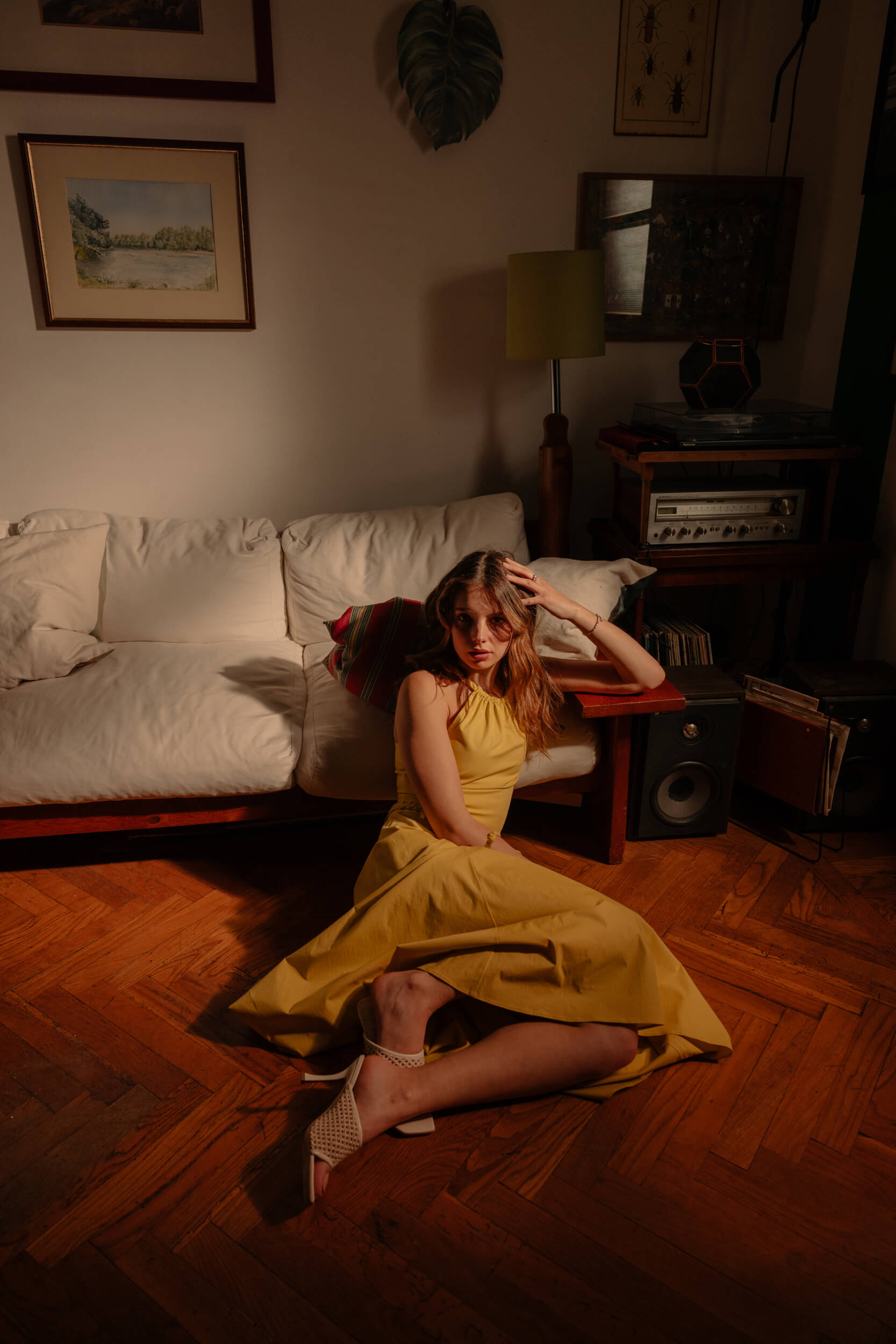
What makes you feel safe, instead?
Tenderly speaking, I’d say hugs, but not all hugs, only those from the people I love: I’m very selective, and it also depends on the space that that person occupied in the hug. However, the physical contact that I deliberately like to have with someone is an incredibly safe space for me.
Then, what makes me feel safe is also relying on the hope that this life will make some sense, sooner or later, somewhere, so also everything that happens to me together over the years will find its place as it’s done so far. Even though I find it raw and hard to live, sometimes, I have a deep respect for life, so this makes me feel safe in some way. It’s a sort of spiritual interpretation, but I’m not talking about God or gods because I think it’s almost restrictive in its conceptualization, but I believe there’s a very powerful vital movement to which we belong and of which we’re a product, and this thought makes me feel safe, and also just knowing that I’m part of the history of humanity, so in 200, 100, or 50 years no one will remember about me anymore and won’t remember about my problems anymore because I won’t be alive, I will be dust, and this thought makes me feel incredibly free. Sometimes, I worry needlessly, while I’m alive, but if I think that eventually, I’ll go back to being nothing… Why am I hurting myself like this? We should let go of all this, and give up, no one will remember, one day we won’t need to carry this burden anymore because we’ll only be a part of the history of humanity. This makes me feel free and safe.
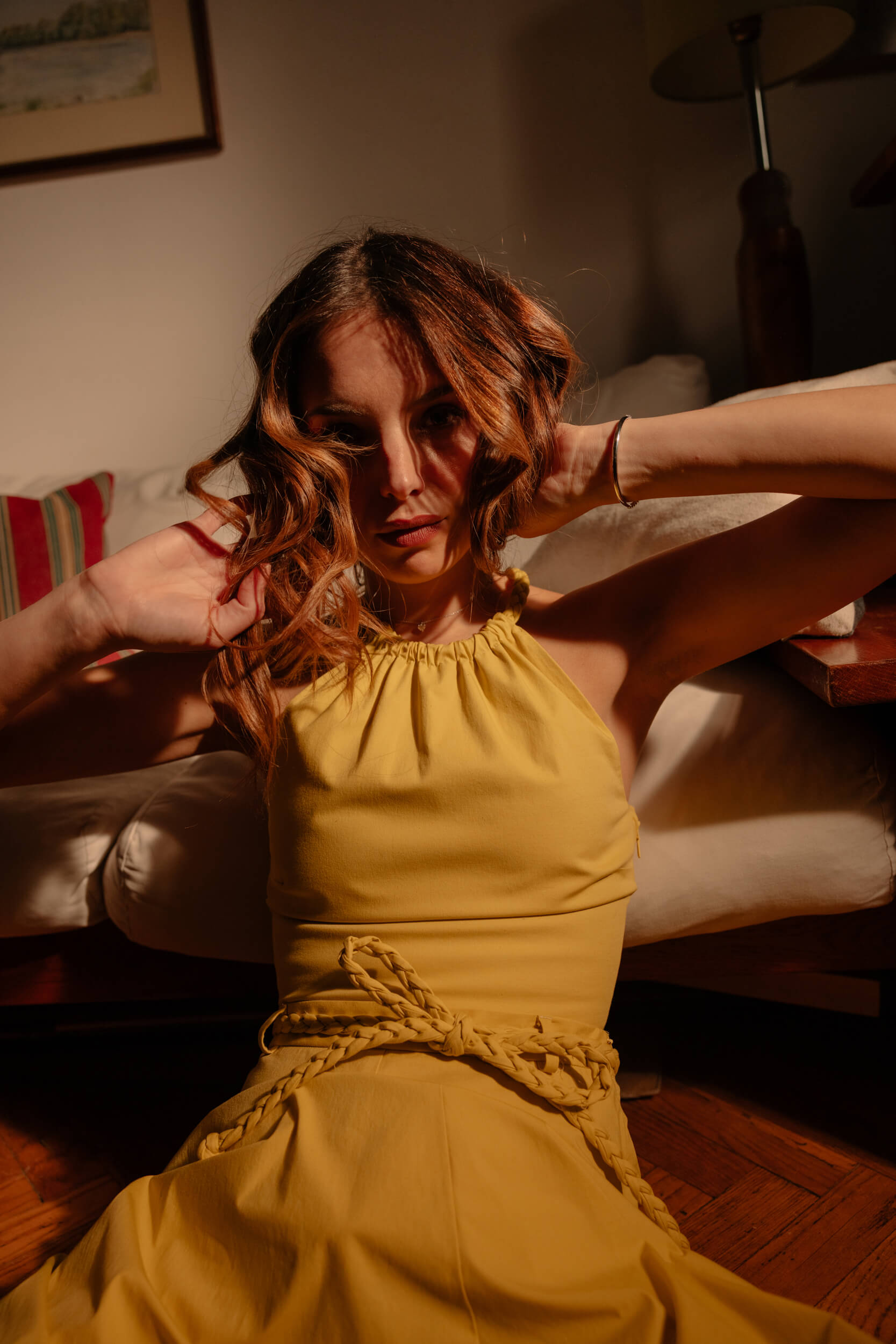
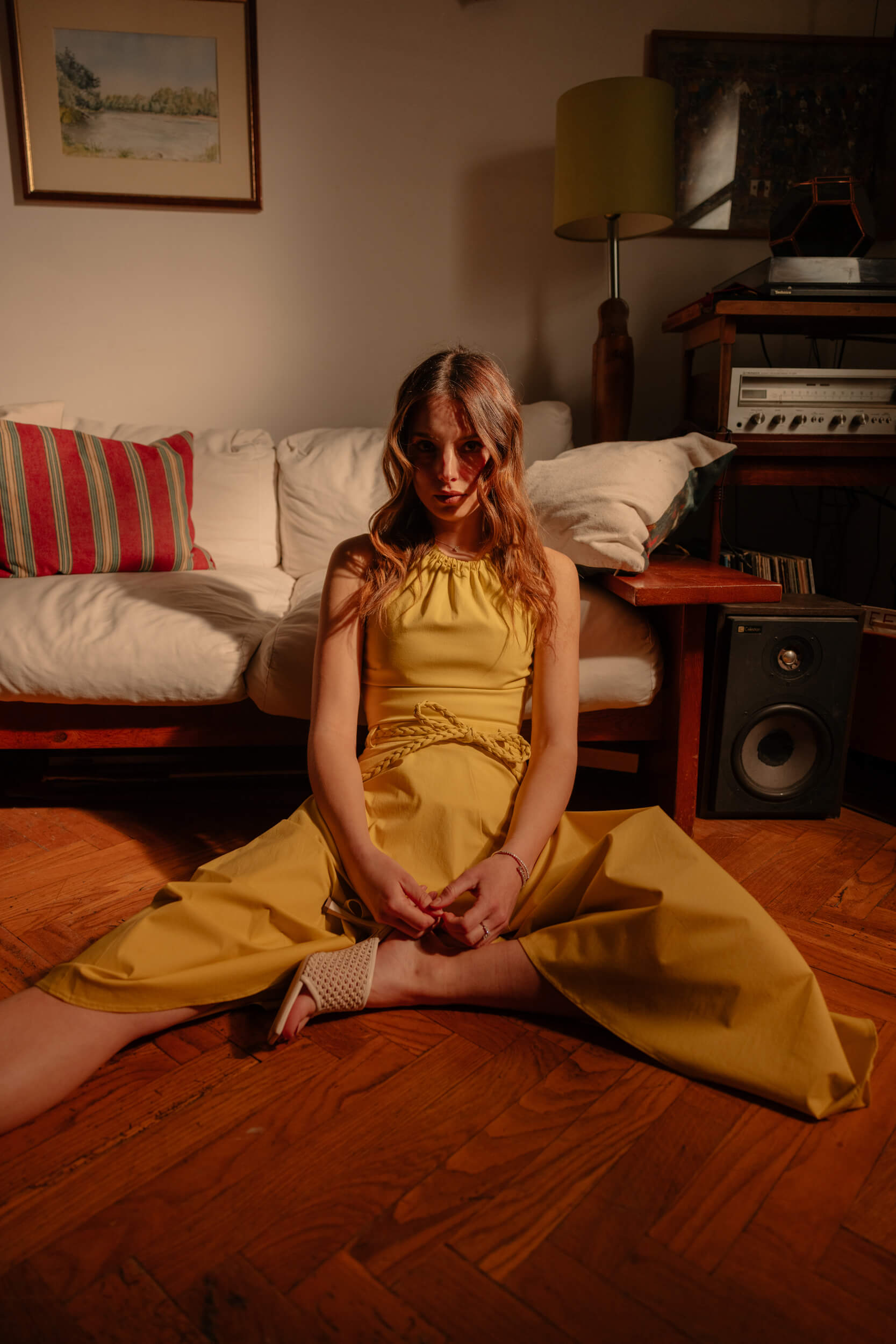
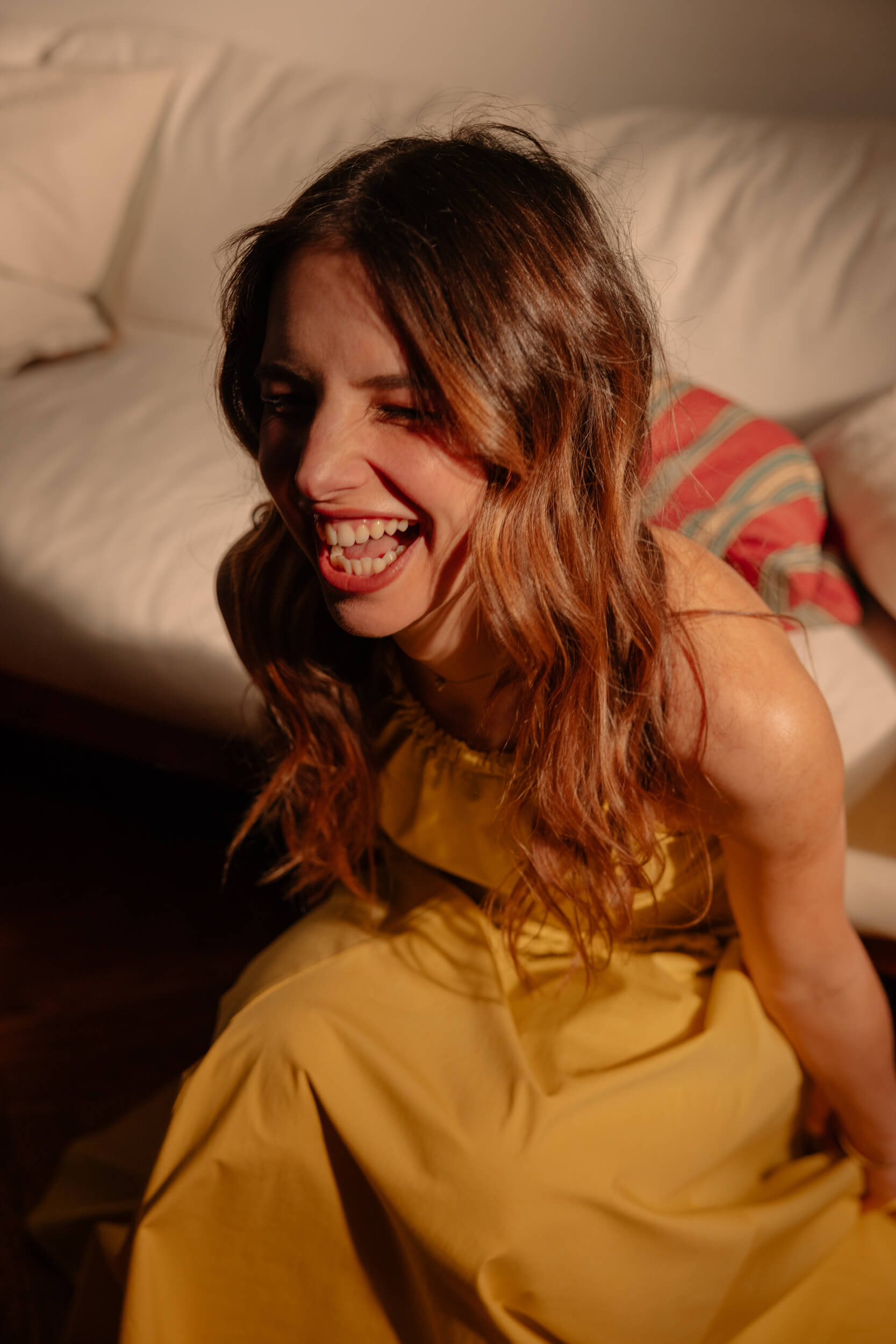
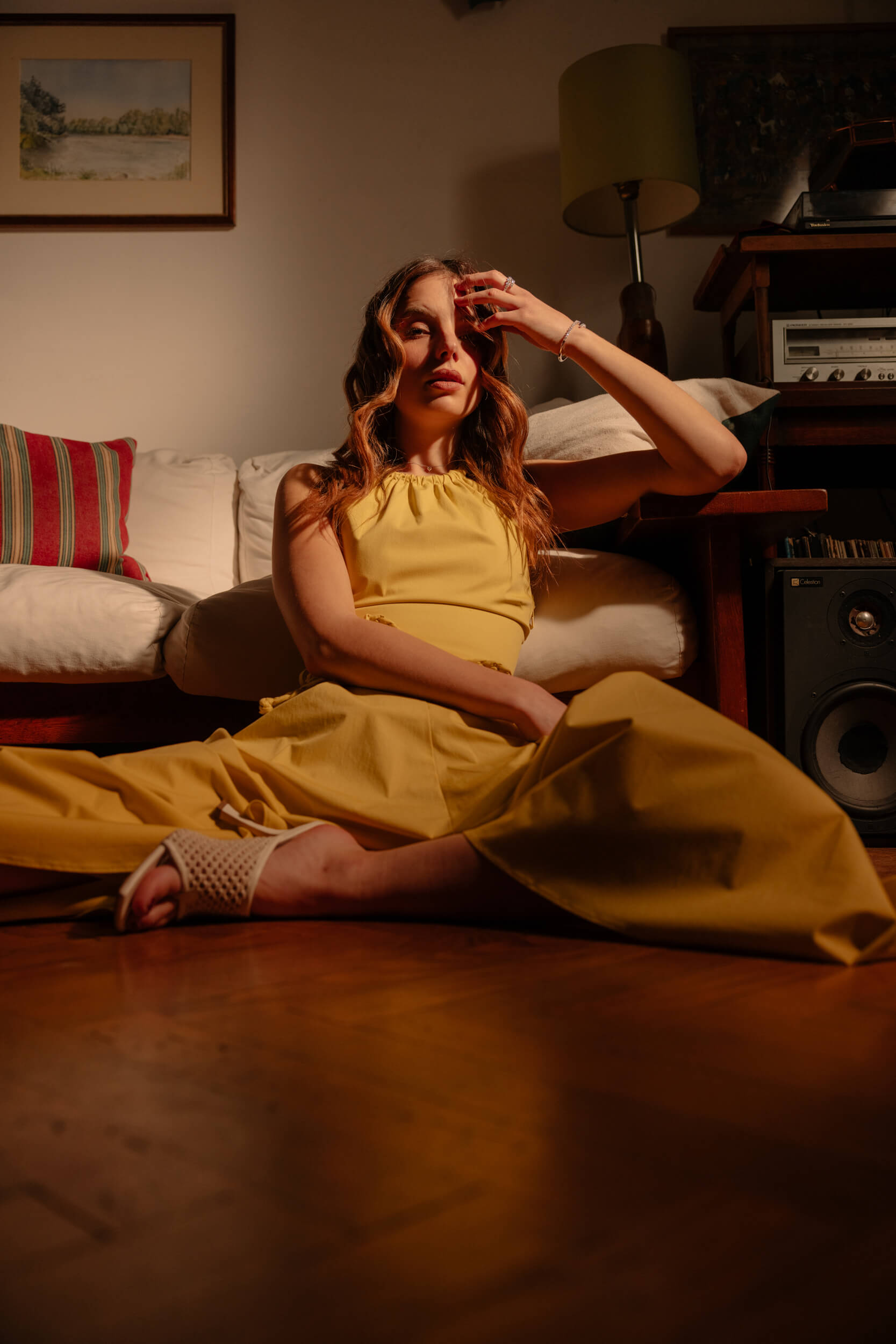
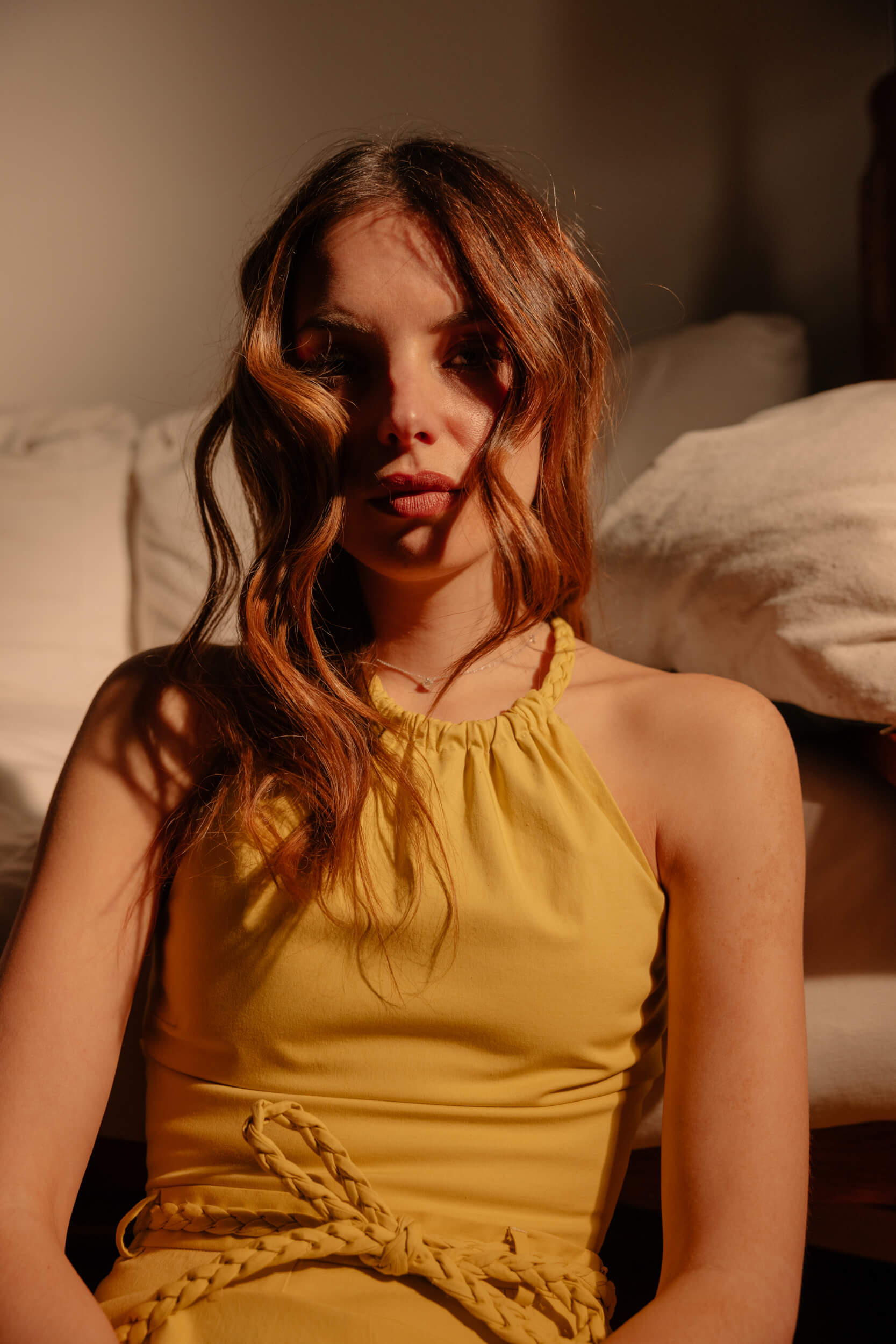
Besides the books you’re studying, what’s the book that you’re reading right now?
On my nightstand, I keep “My Family and Other Animals” by Gerald Durrell, “Reclaiming Unlived Life: Experiences in Psychoanalysis,” and “Vegetables: A Biography.” The latter, by Évelyne Bloch-Dano, was a birthday gift I got because I don’t eat meat, and for some time I didn’t eat fish, either (but now I have to because of some health issues I have), so I was given that book in my phase of 100% vegetarianism: it tells the whole story of all vegetables, it’s a very nice book, cute, honest, and fun because it’s nice to know where the food we eat comes from. Some other nice books I suggest reading are “La città dei vivi” by Nicola Lagioia, which I read while I was filming in Spain – I started in on the plane, and I wish I didn’t, it’s a book that tears you apart, it’s so good – and also “Darling Days” by iO Tillett Wright, which is the biographical story of a gender transition, and it’s truly spectacular, I finished it in four days, slept holding it in my arms, I couldn’t leave it, it’s written and translated very well, I love New York-style literature.
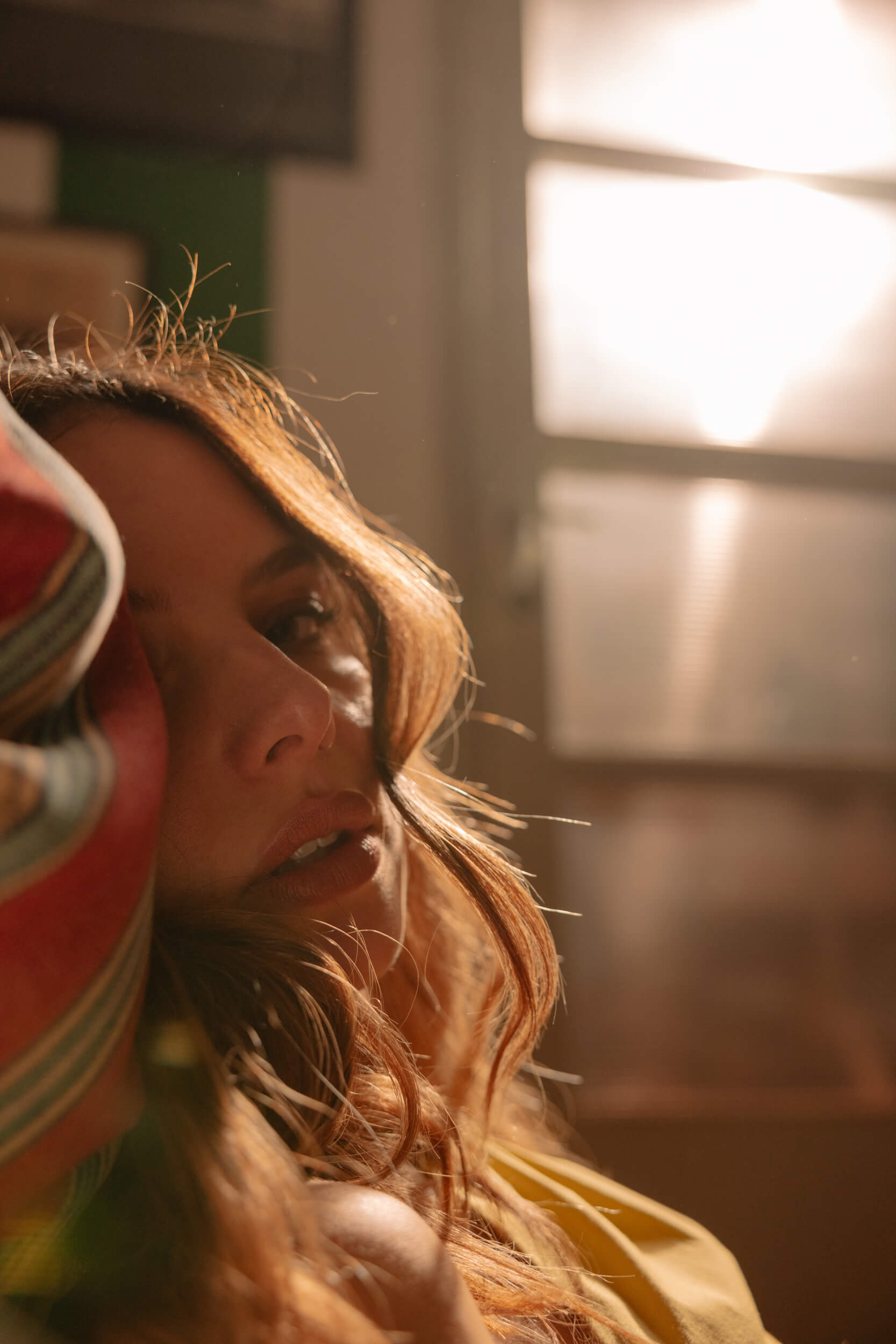
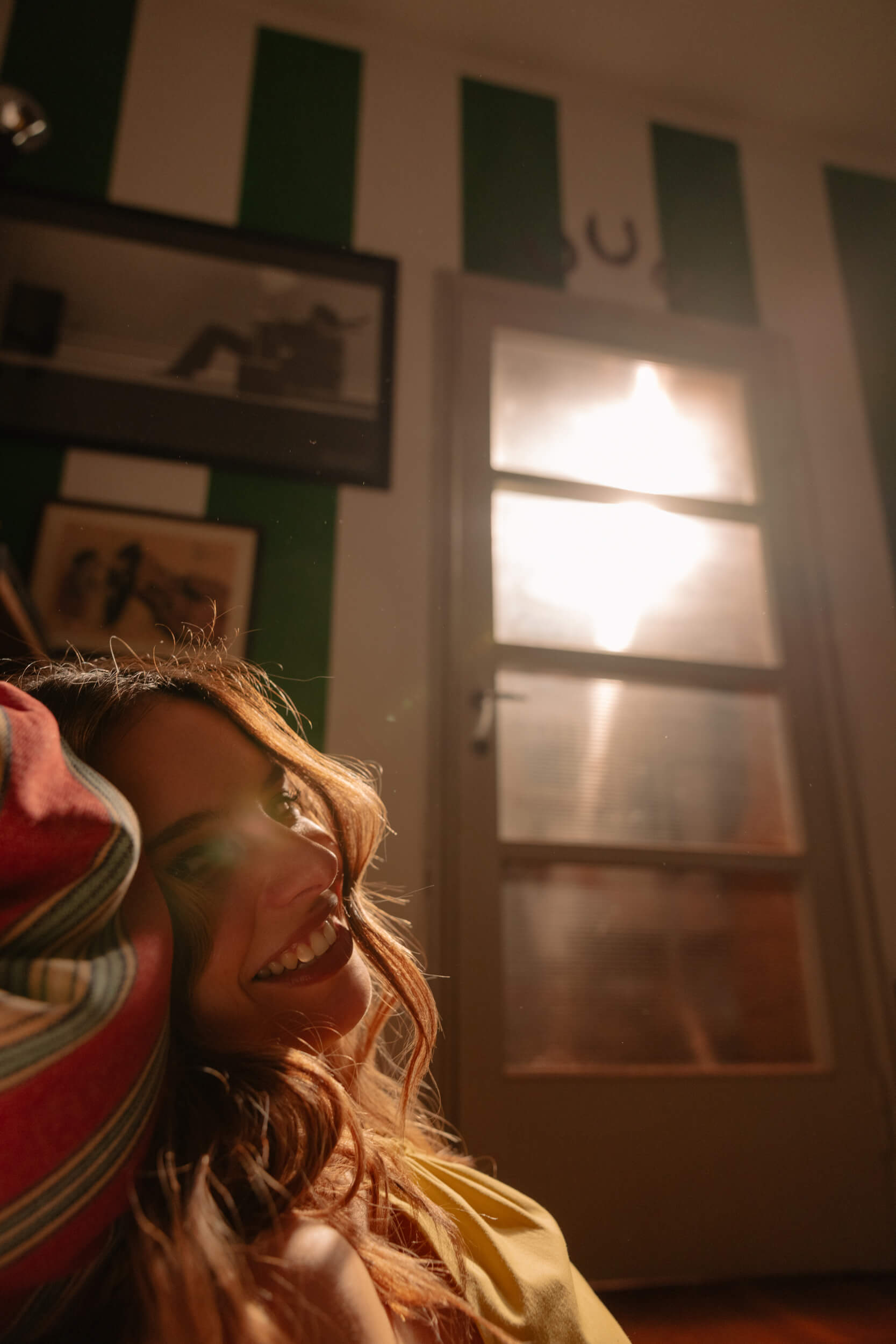
“Vegetables: A Biography”
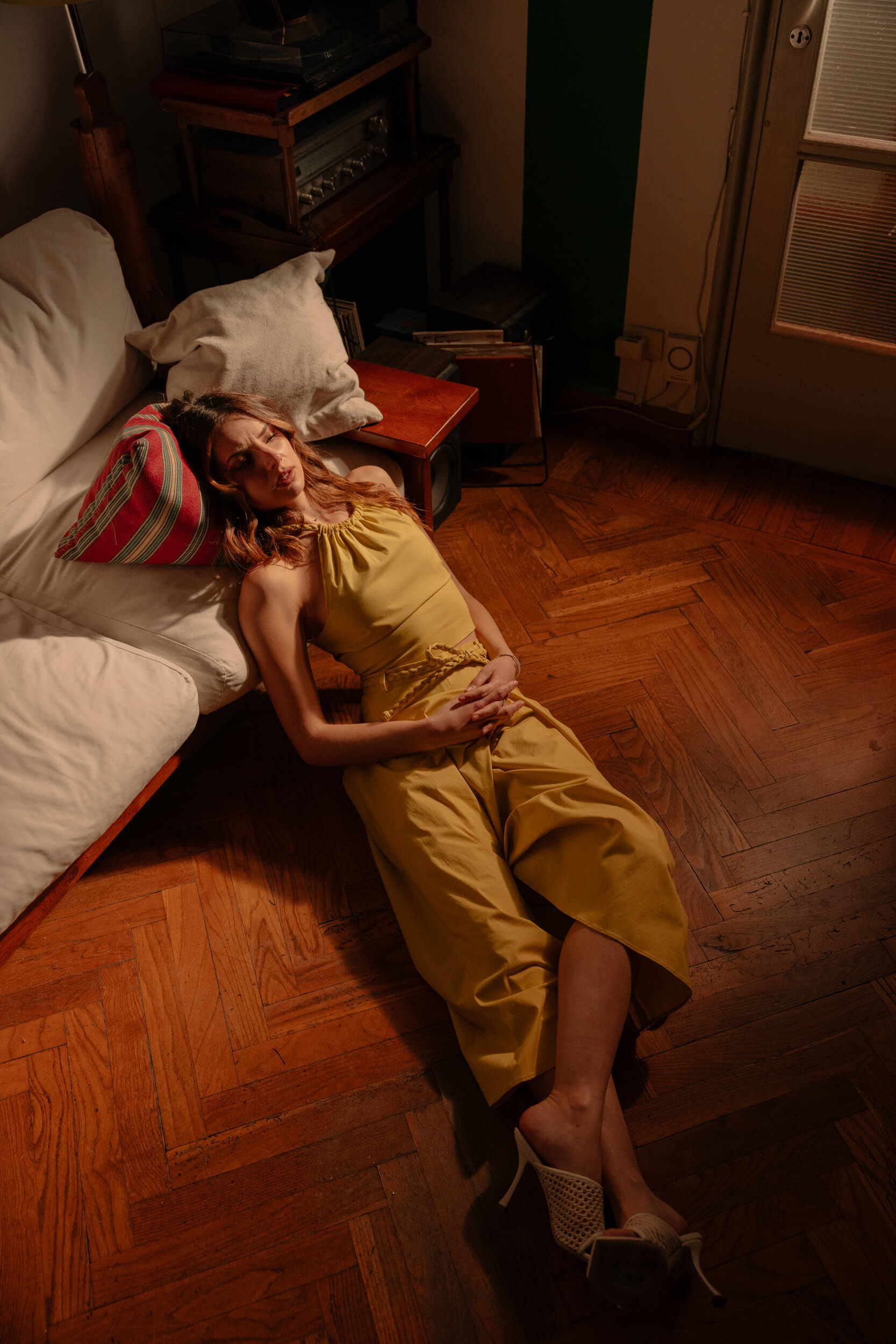
Back to “Toy Boy,” instead, how do you imagine the rest of the story of your character?
I honestly don’t know! Her future is pending, after she frames her brother, in the end: my character is in a very open, delicate position, you don’t know what’s going to happen because she moves from the risk of being killed to having the empire in her hands, but I really don’t know what the directors and screenwriters are masterminding for season three.
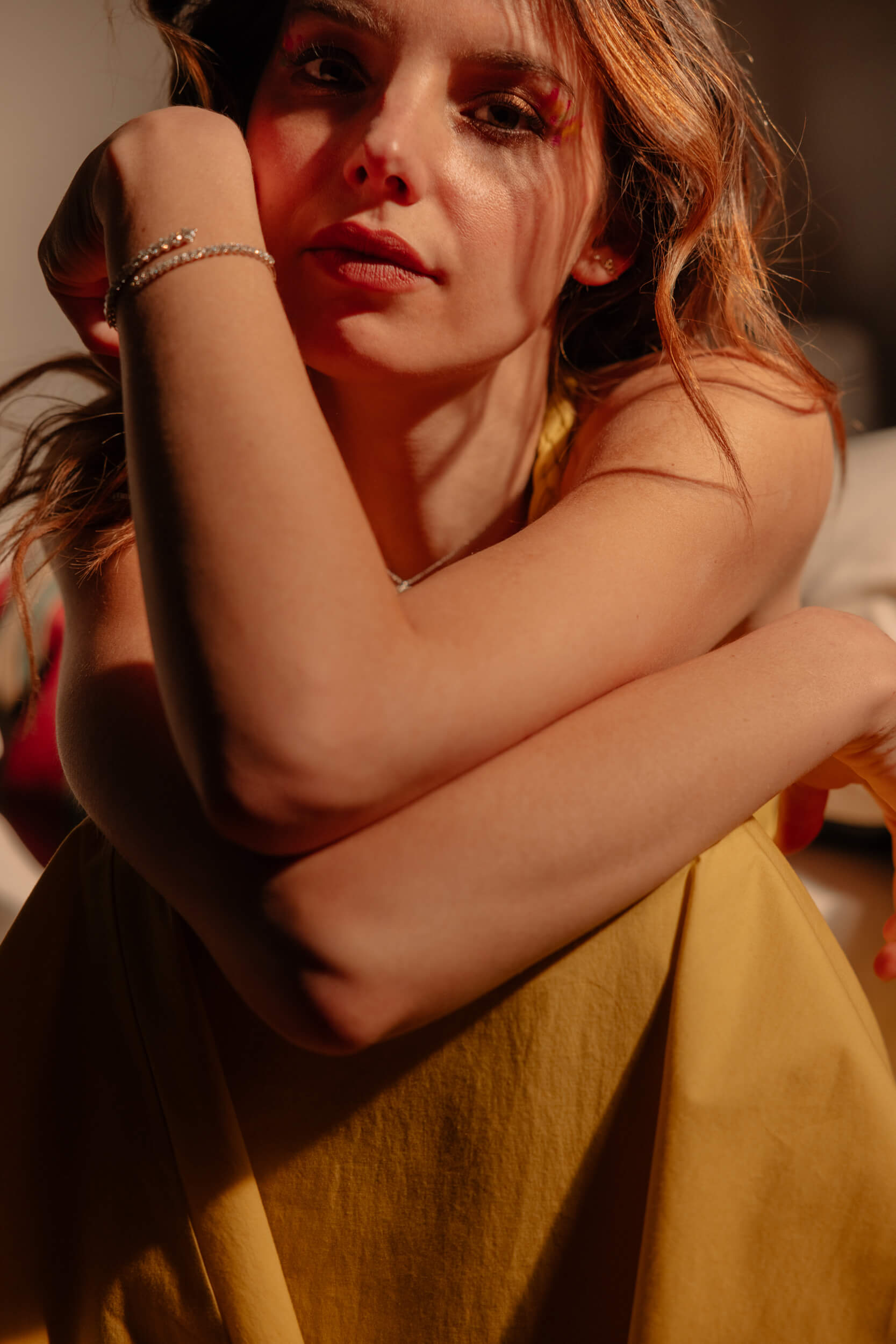
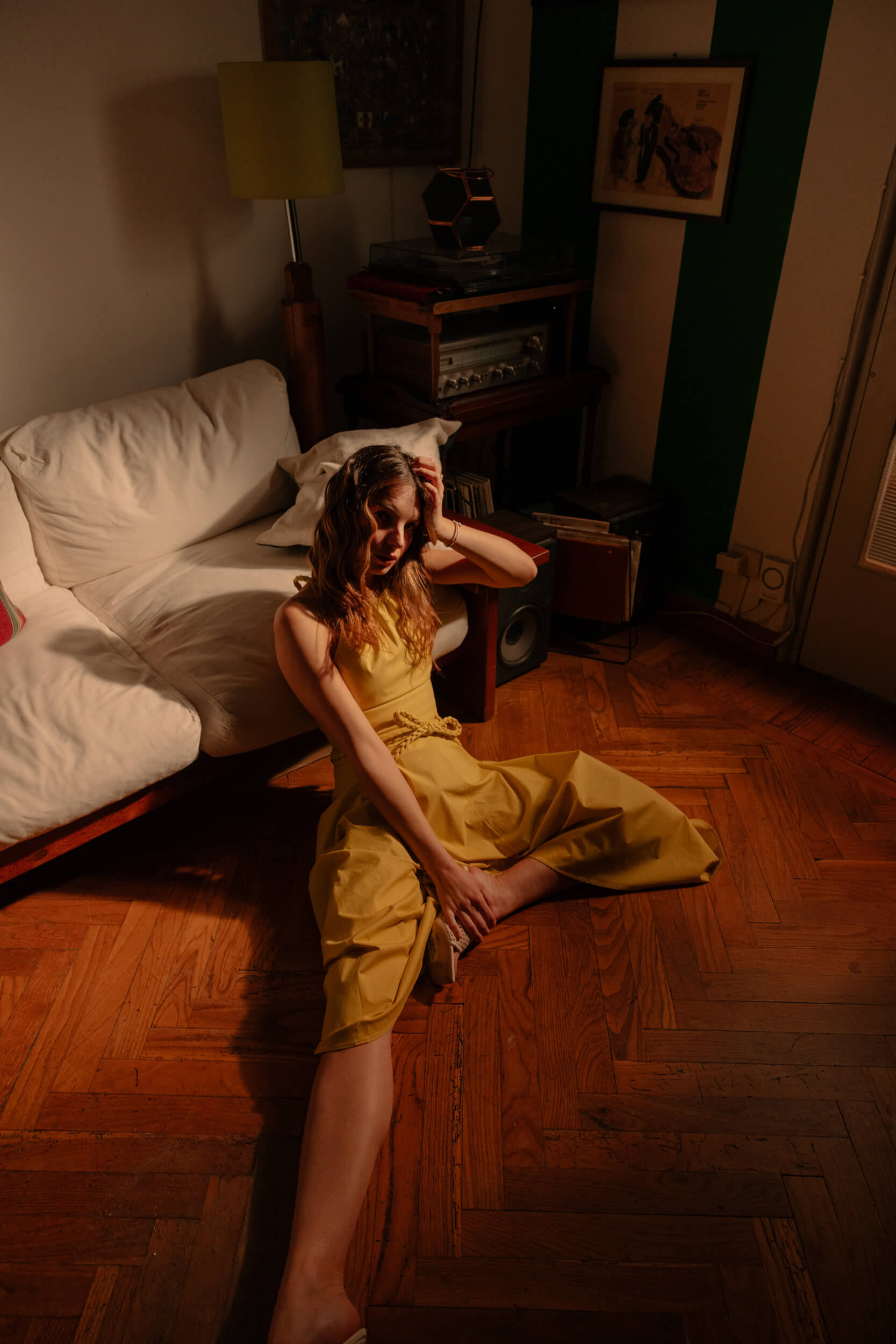
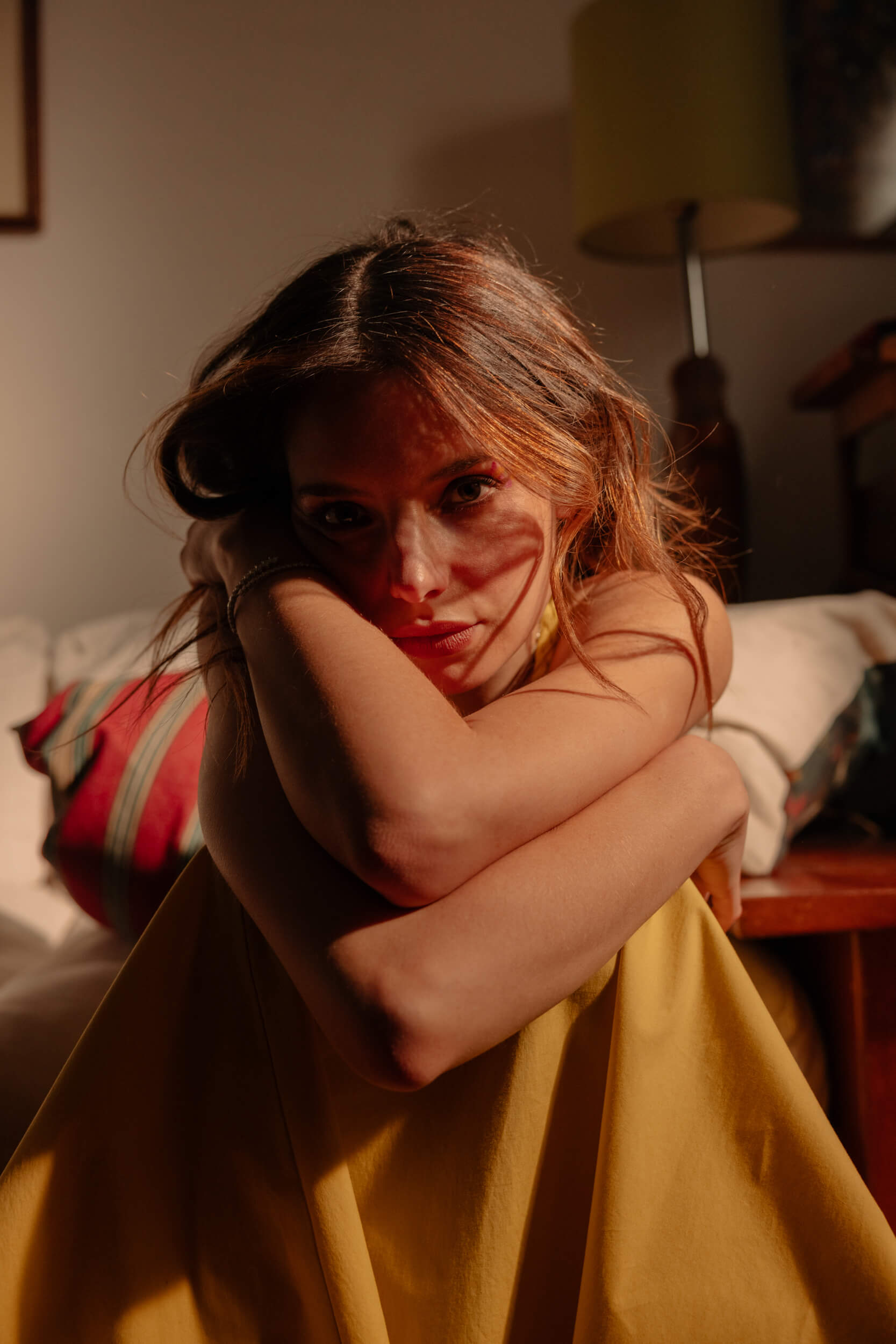
Photos by Johnny Carrano.
Makeup by Vanessa Vastola.
Styling by Sara Castelli Gattinara.
Thanks to Others srl.
LOOK 1
Total Look: Vernisse
Flat Shoes: Jimmy Choo
Choker: Lil Milan
LOOK 2
Total Look: Missoni
Choker: Lil Milan
Flat Shoes: MiAlma
LOOK 3
Total Look: Red Valentino
Flat Shoes: Jimmy Choo
Choker: Lil Milan

